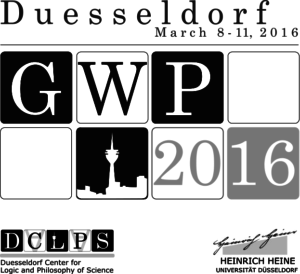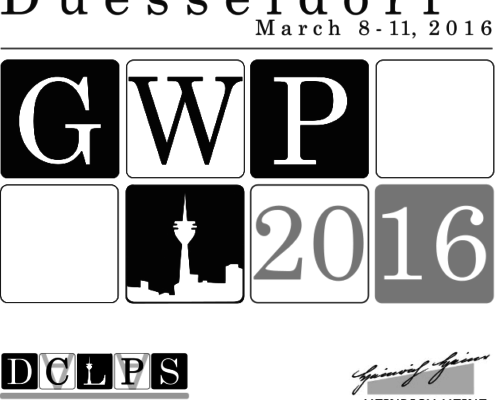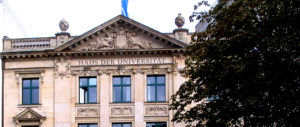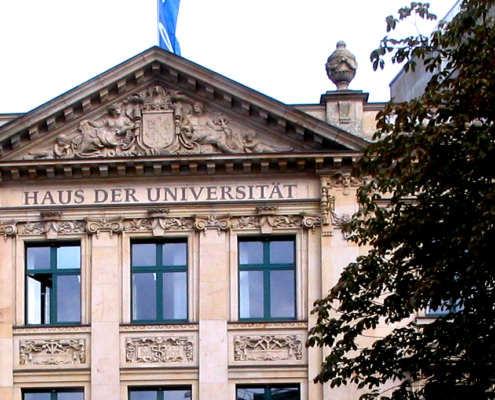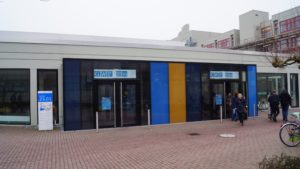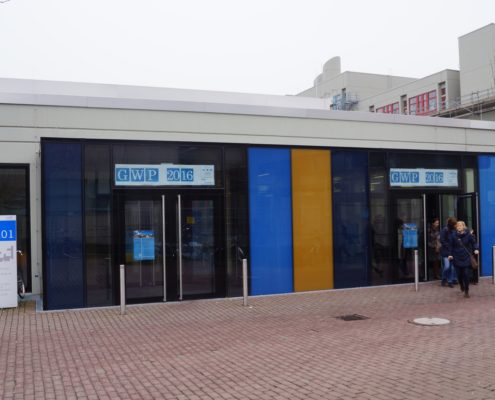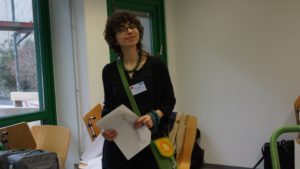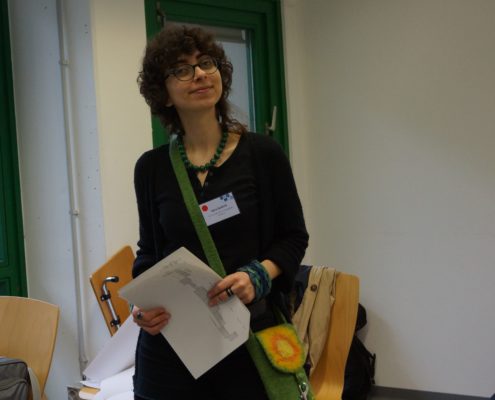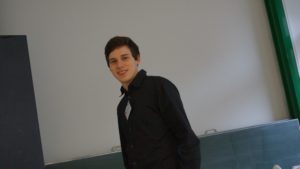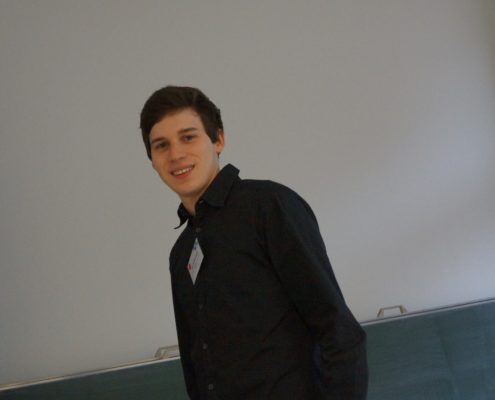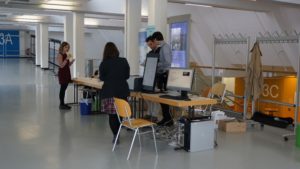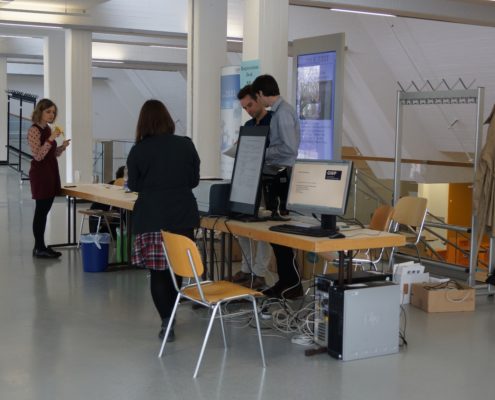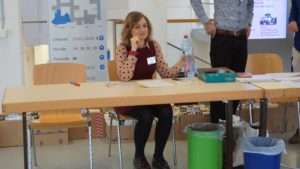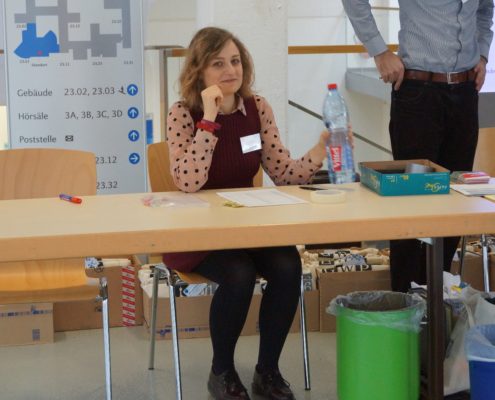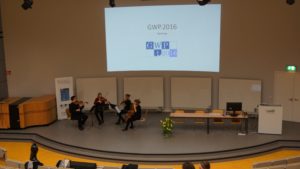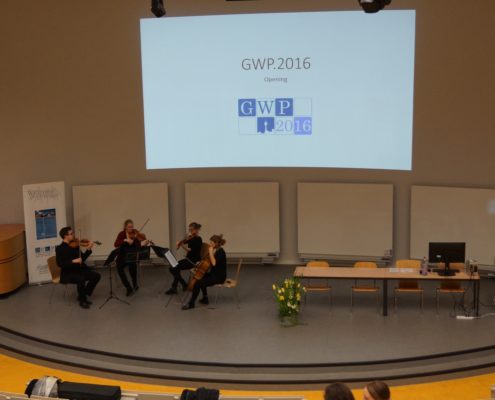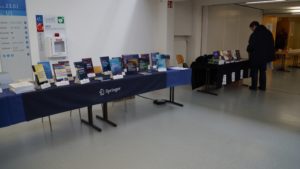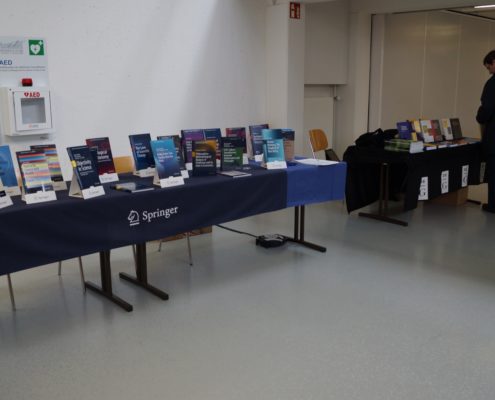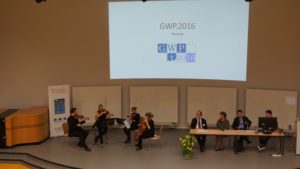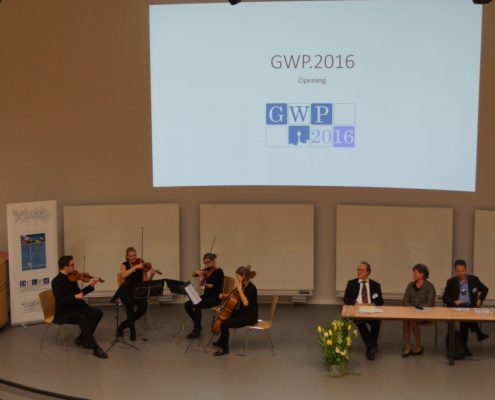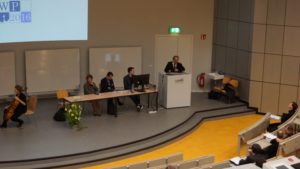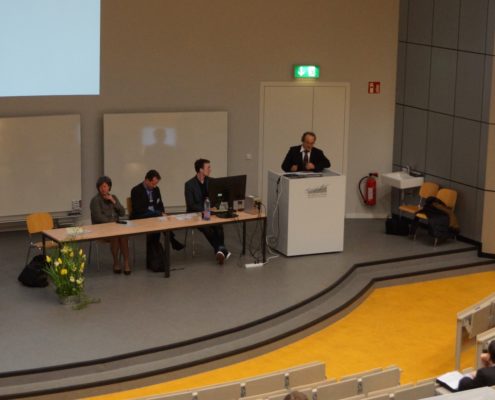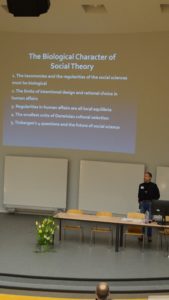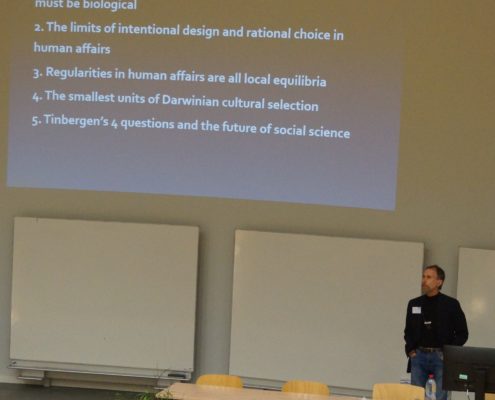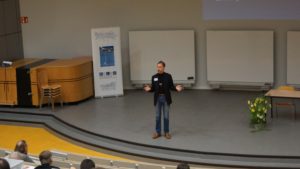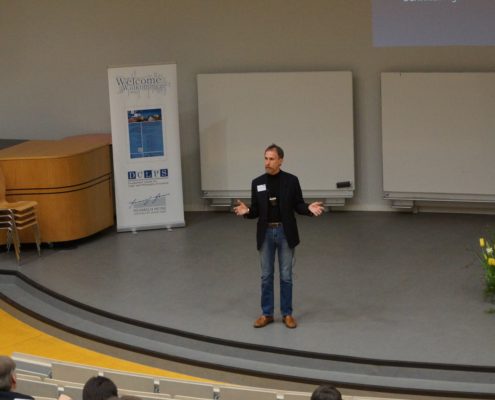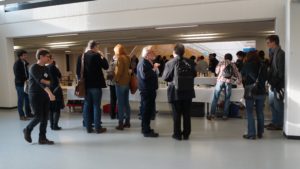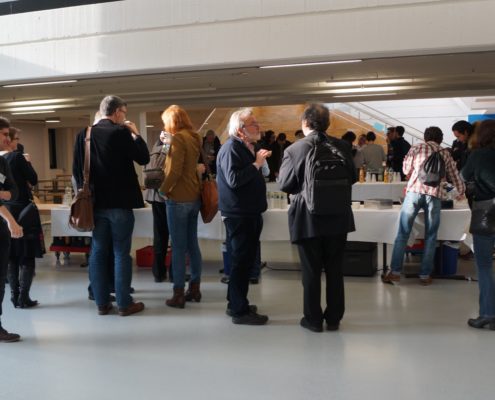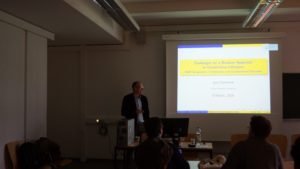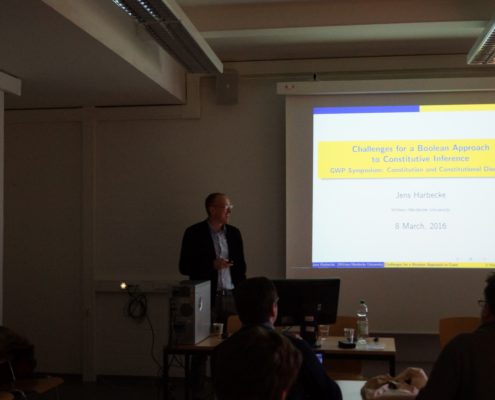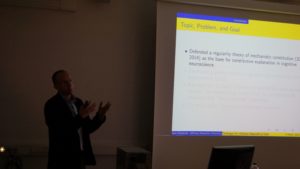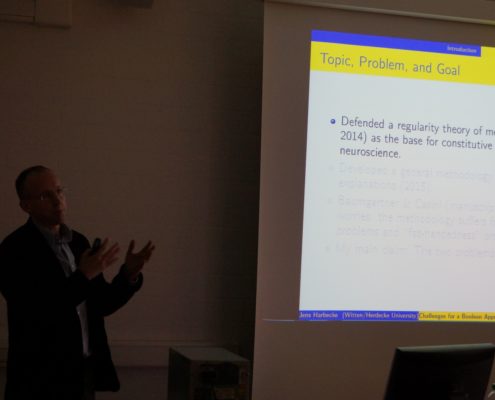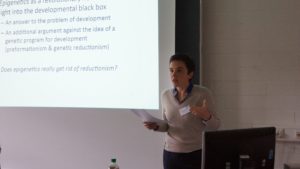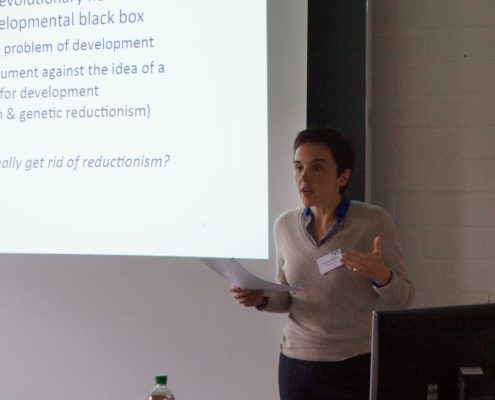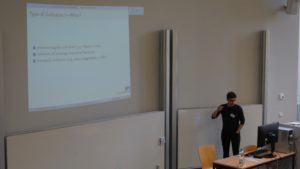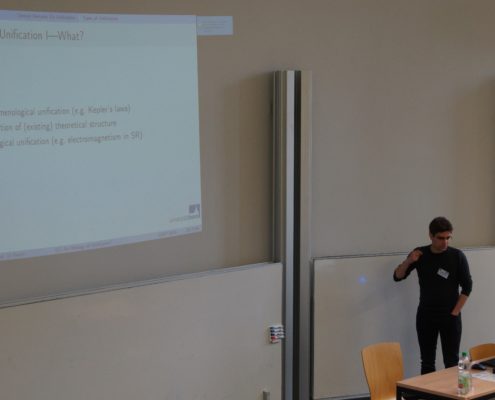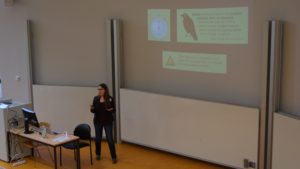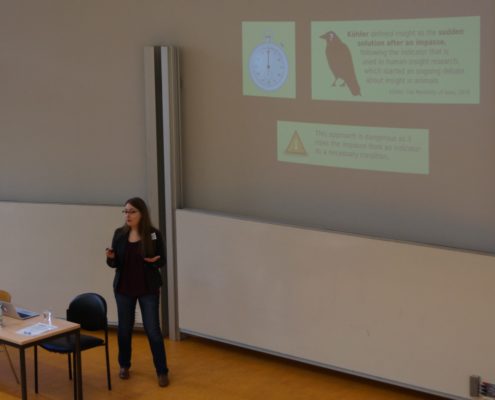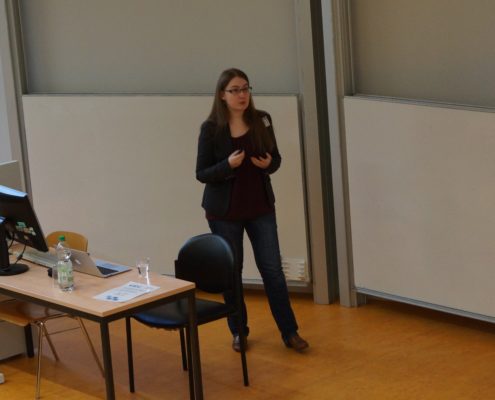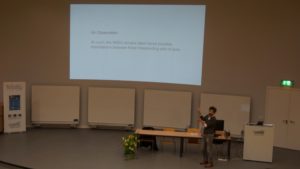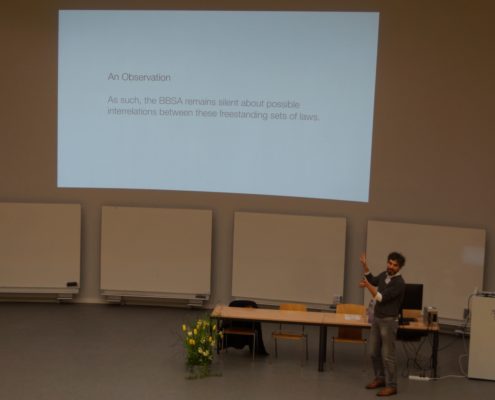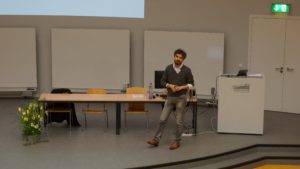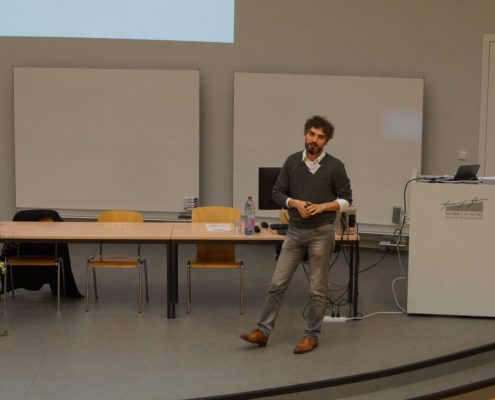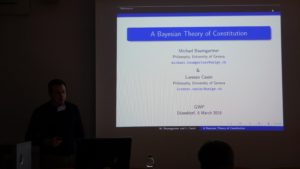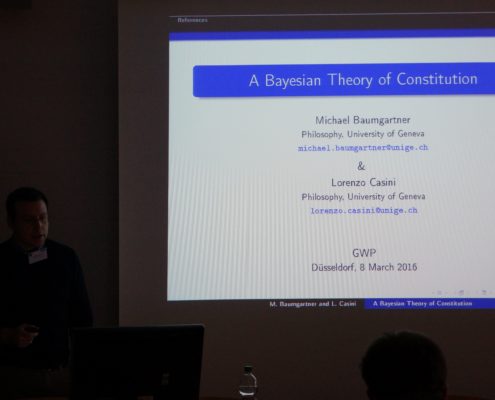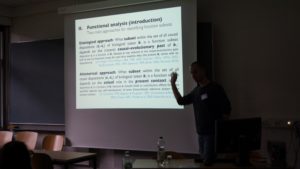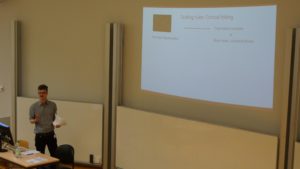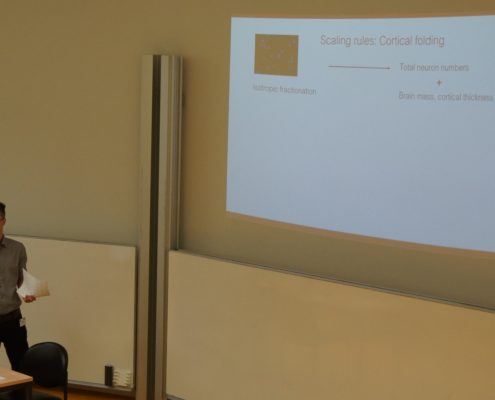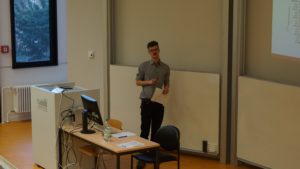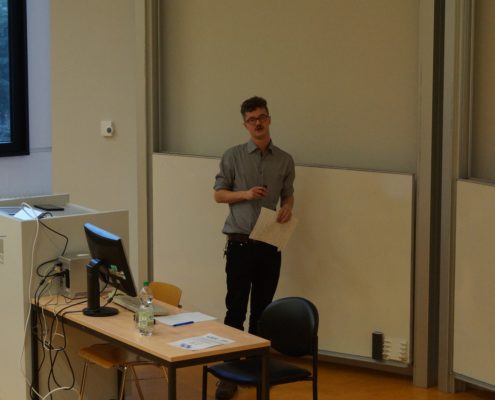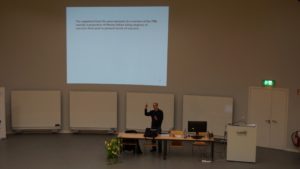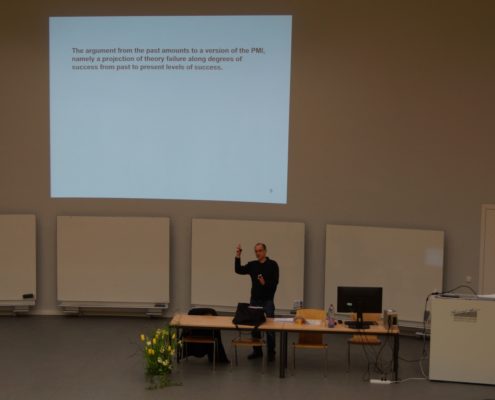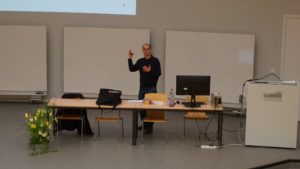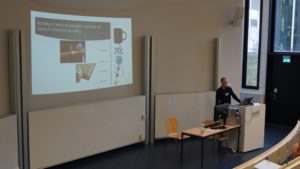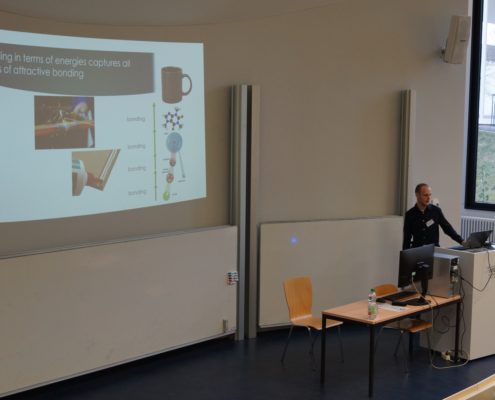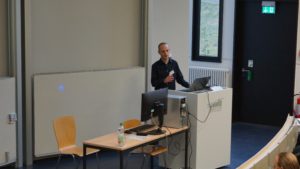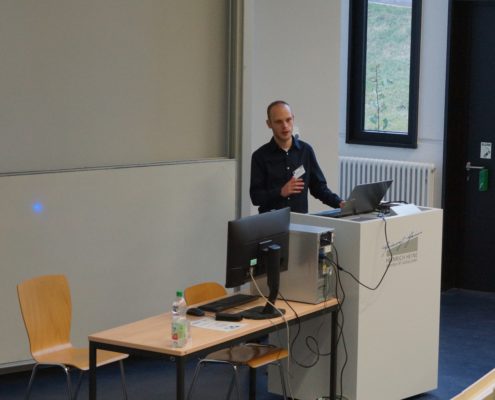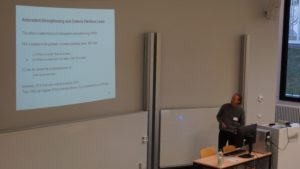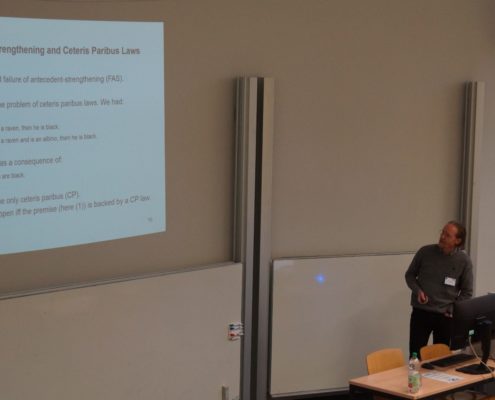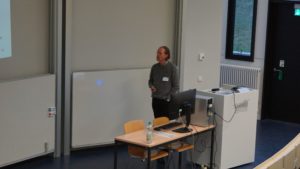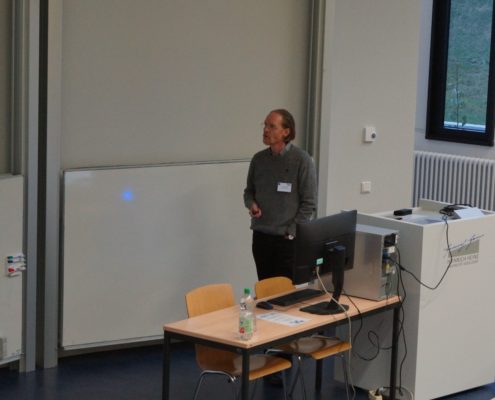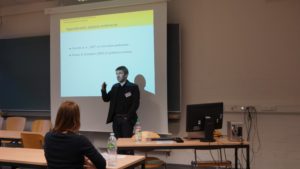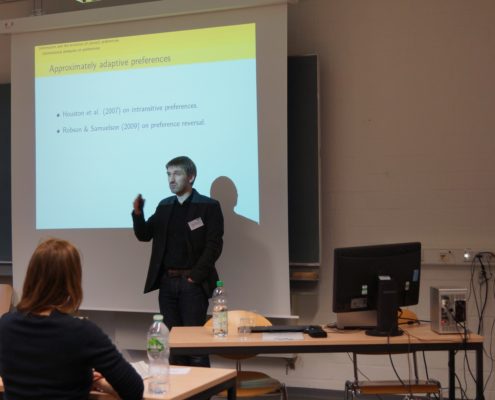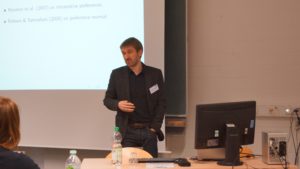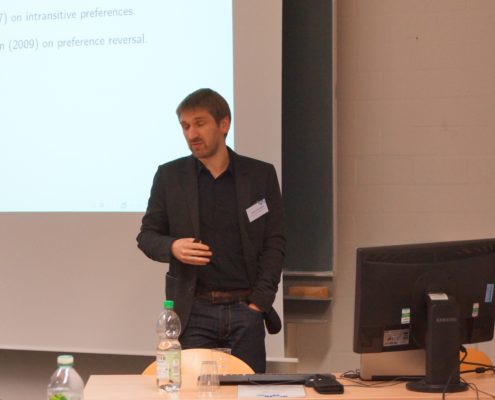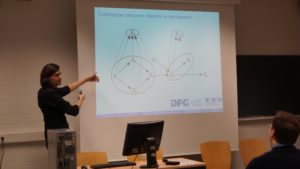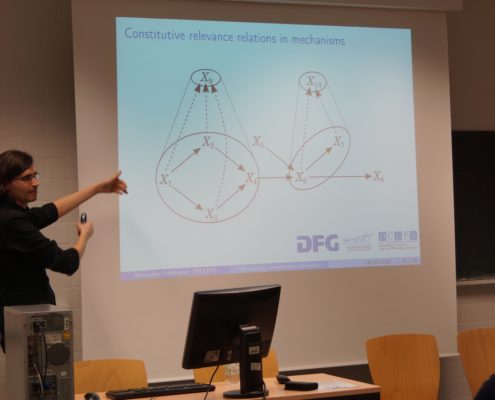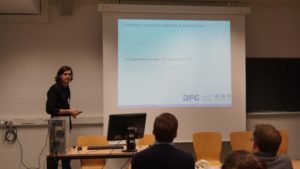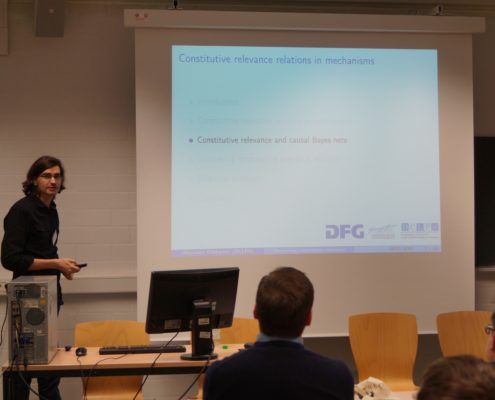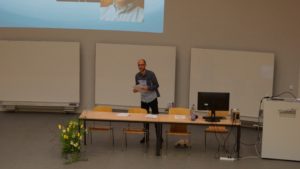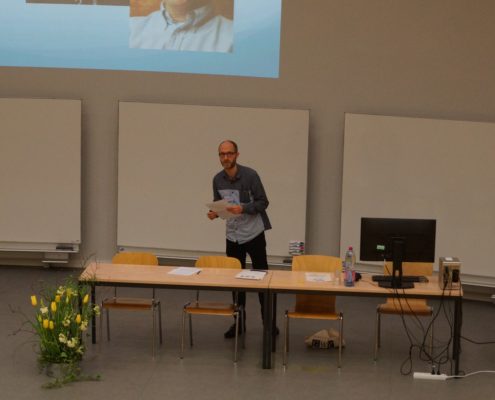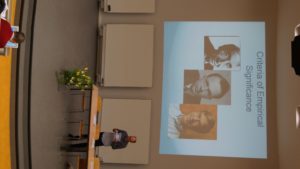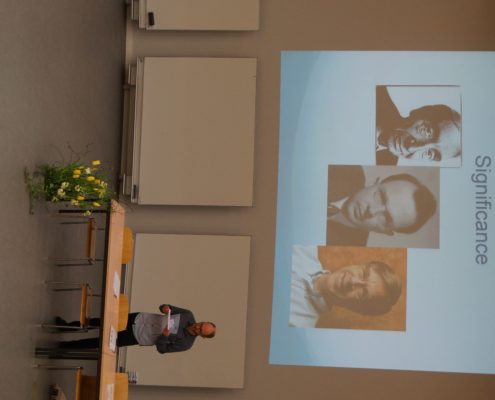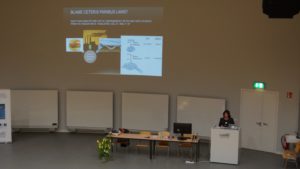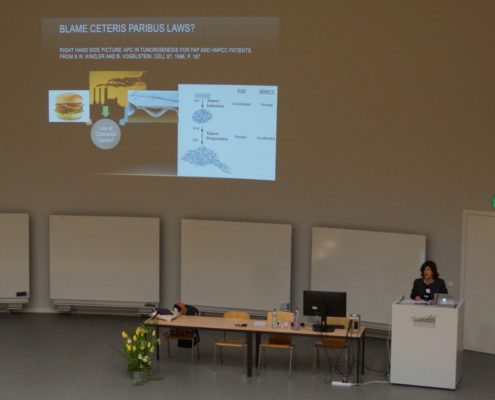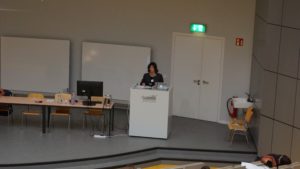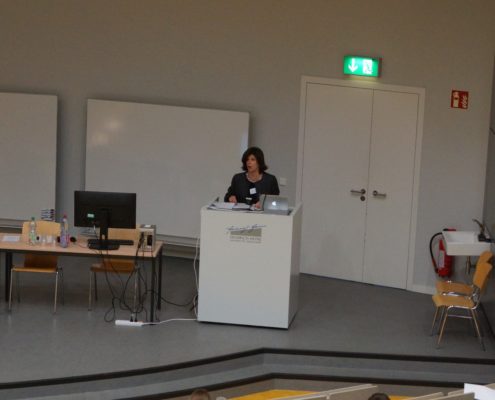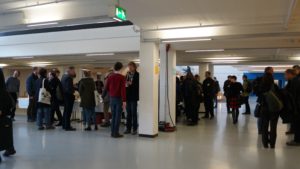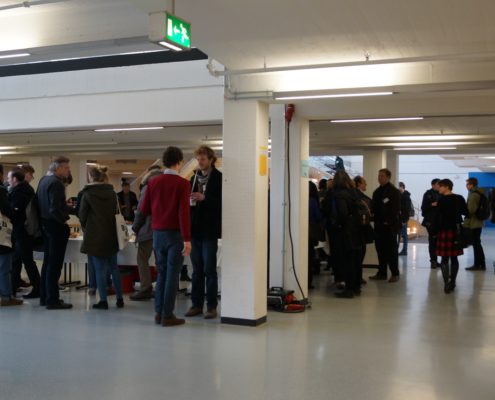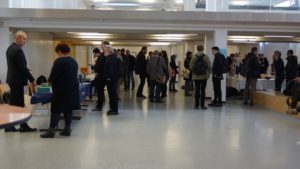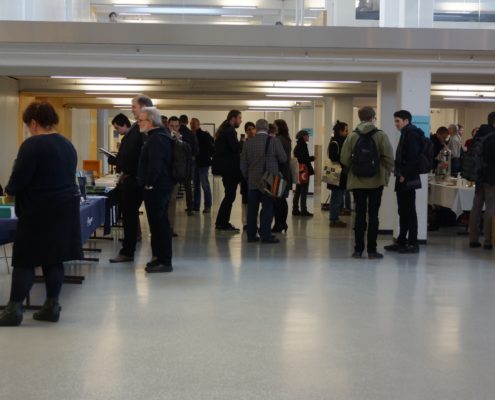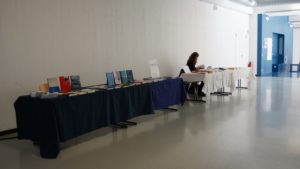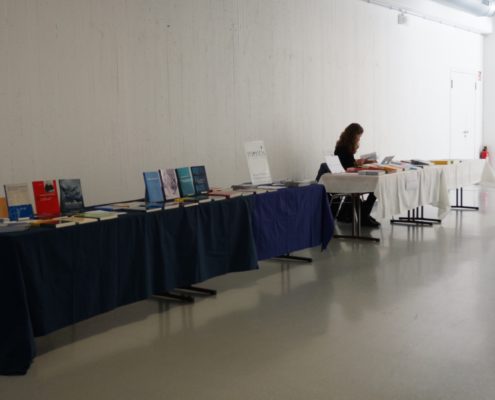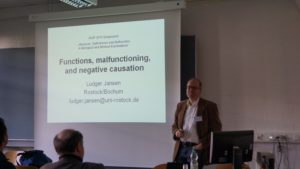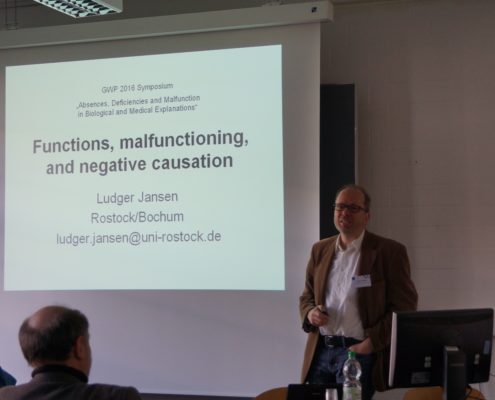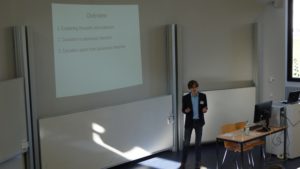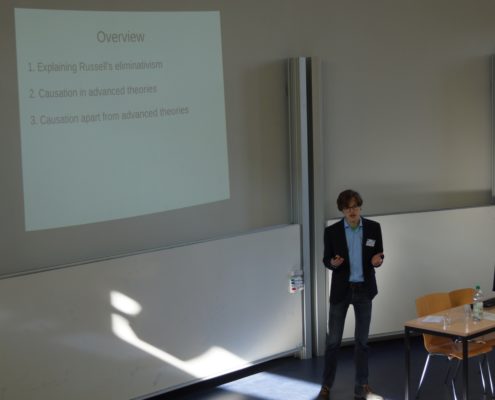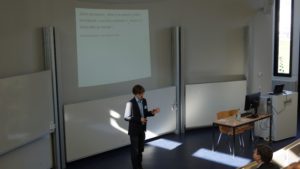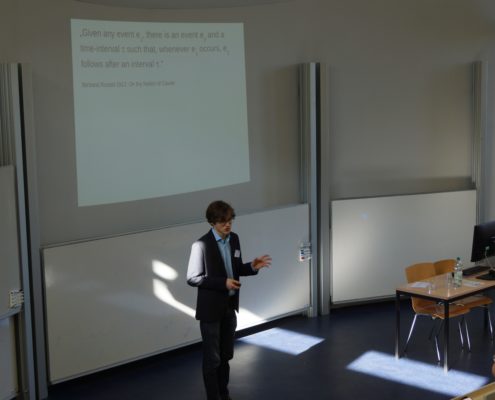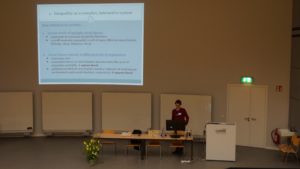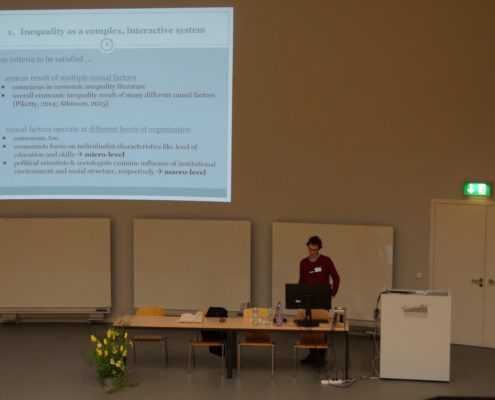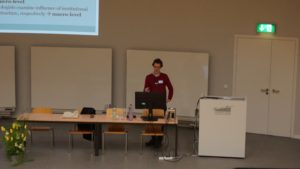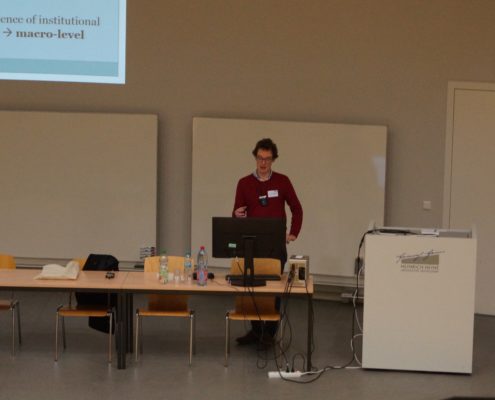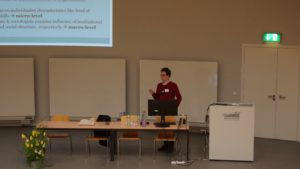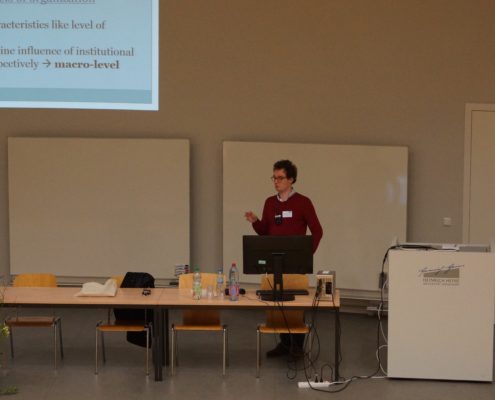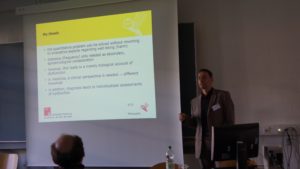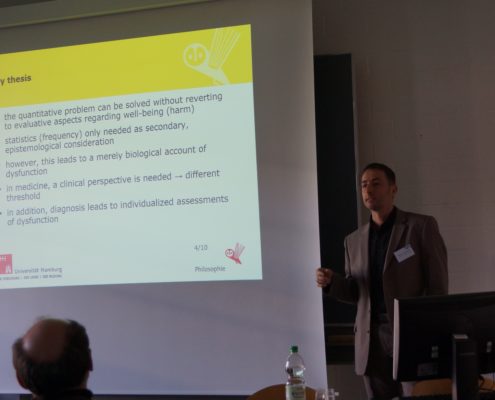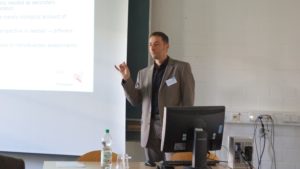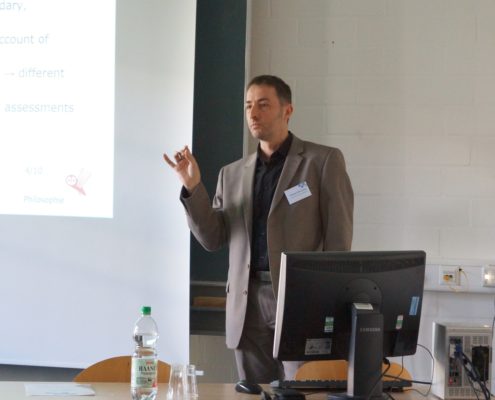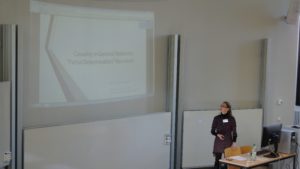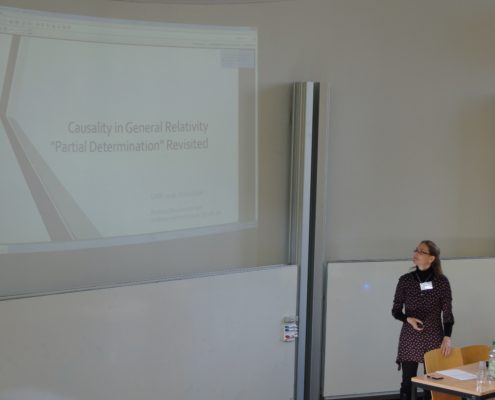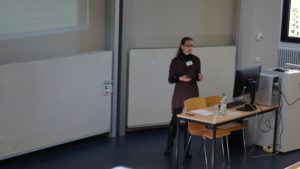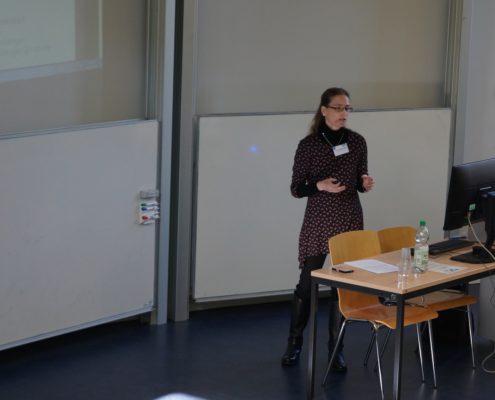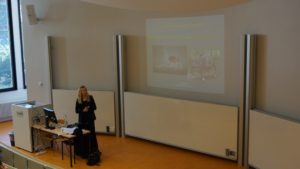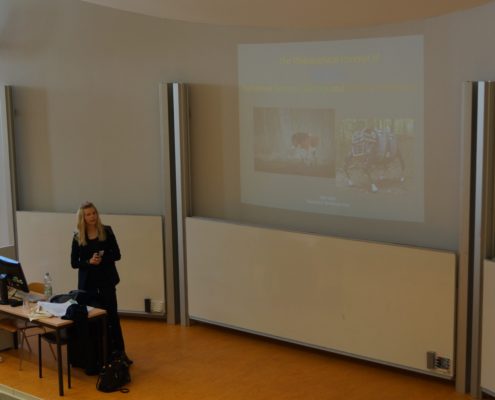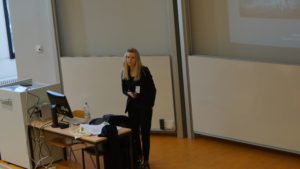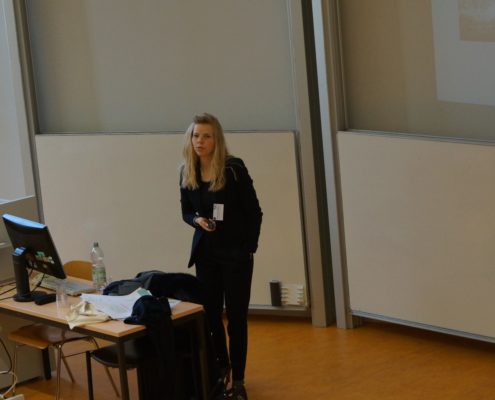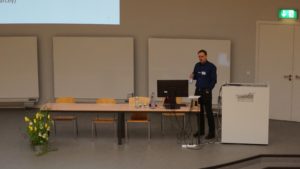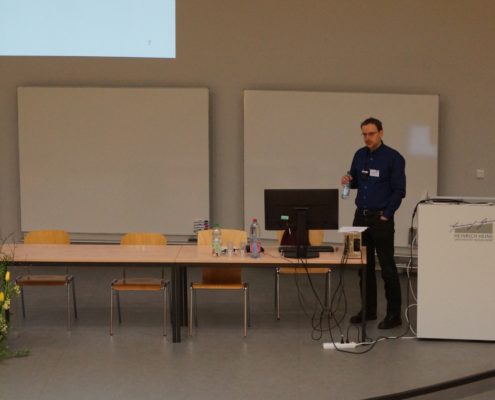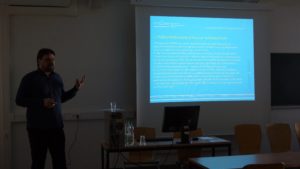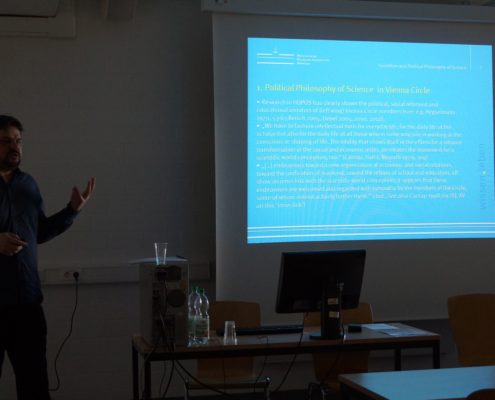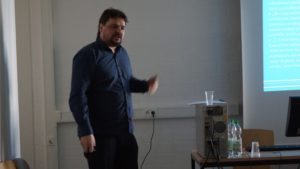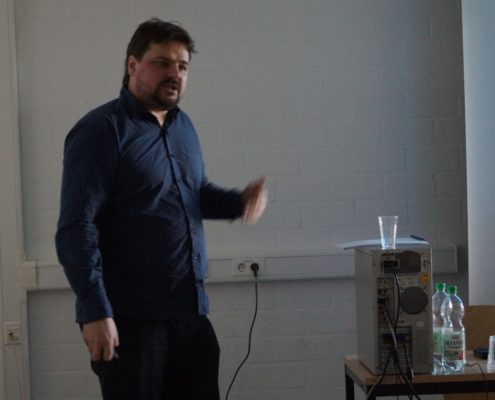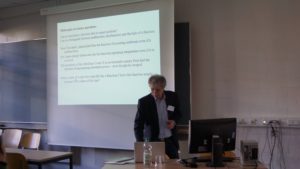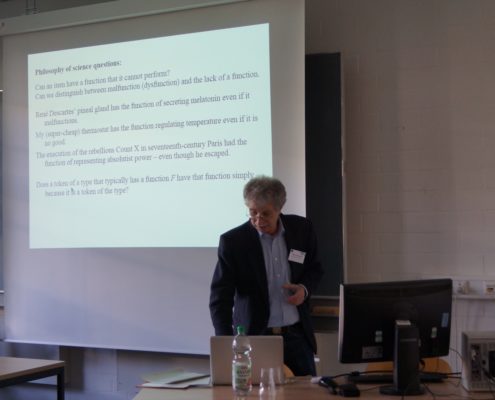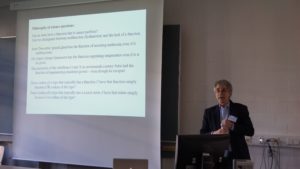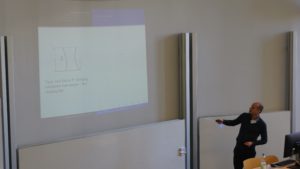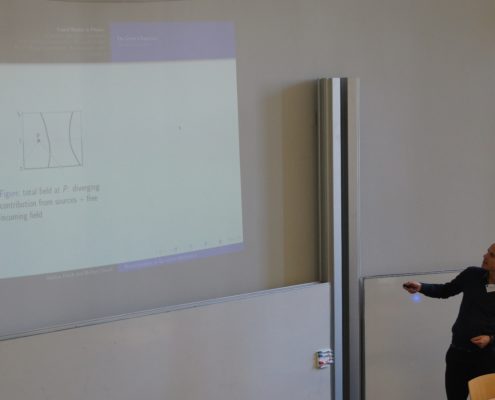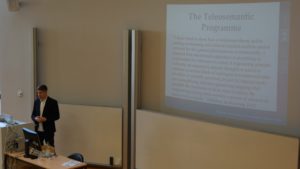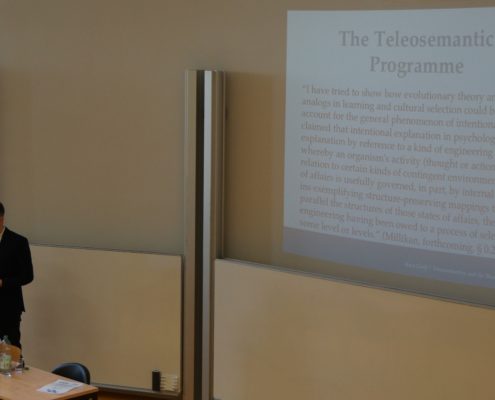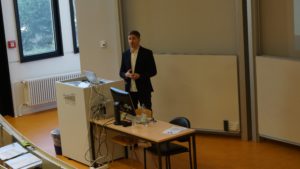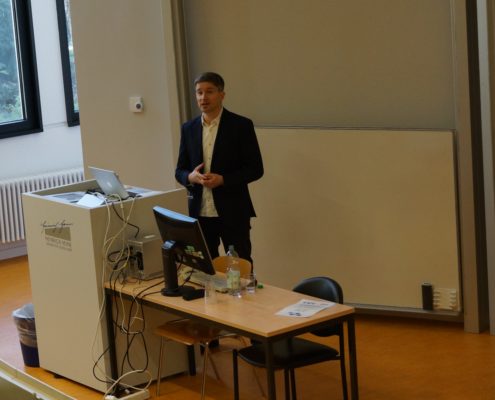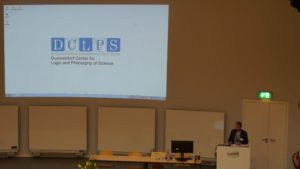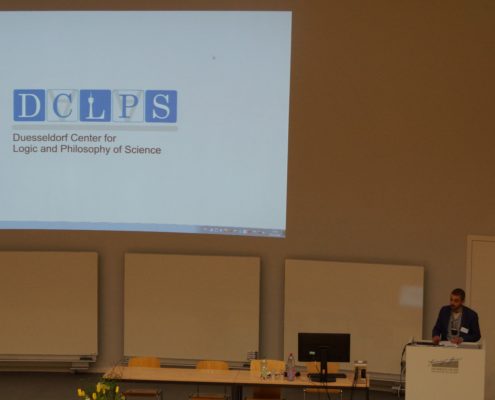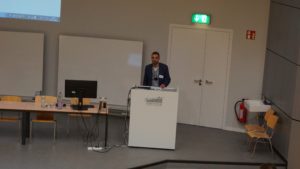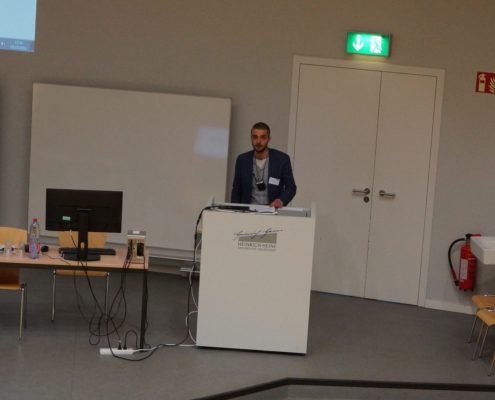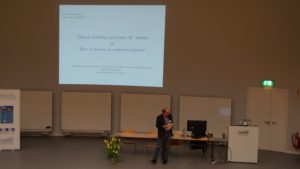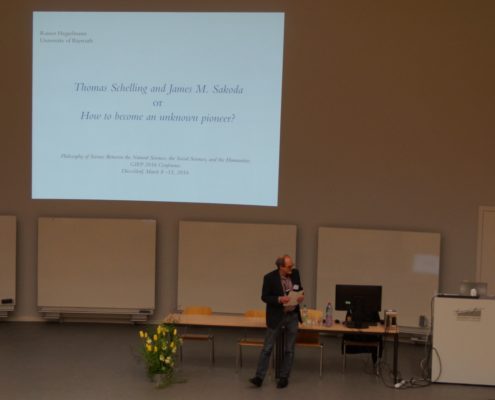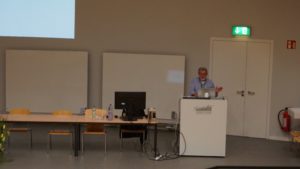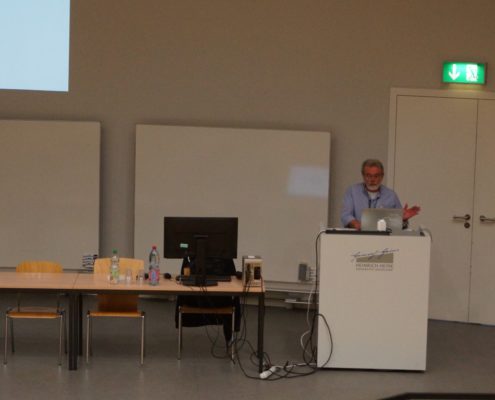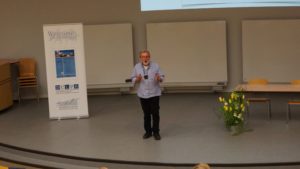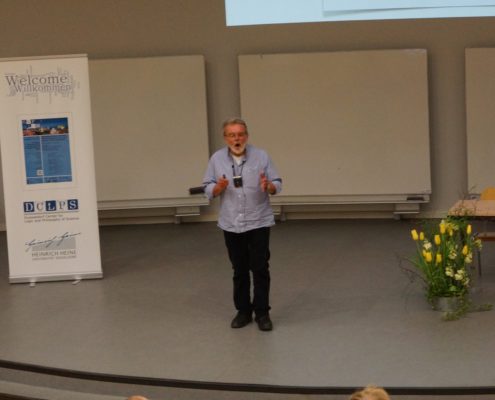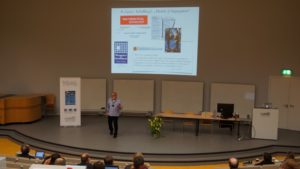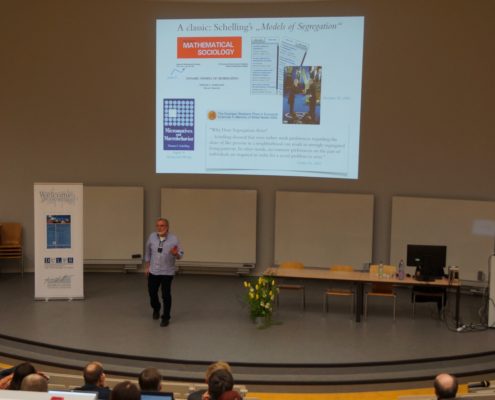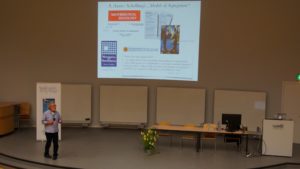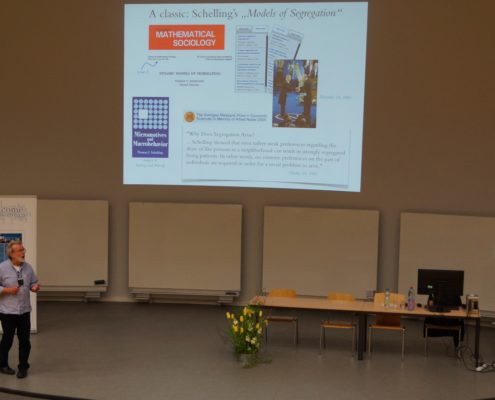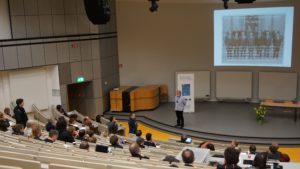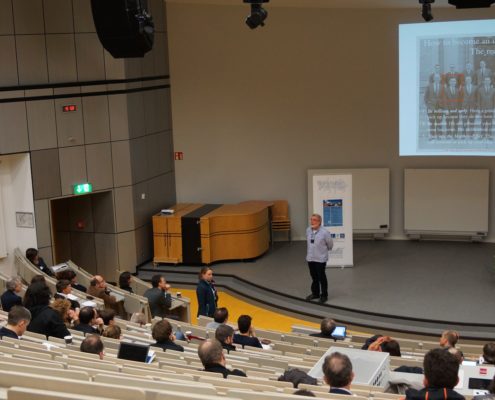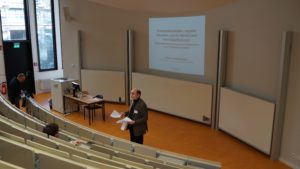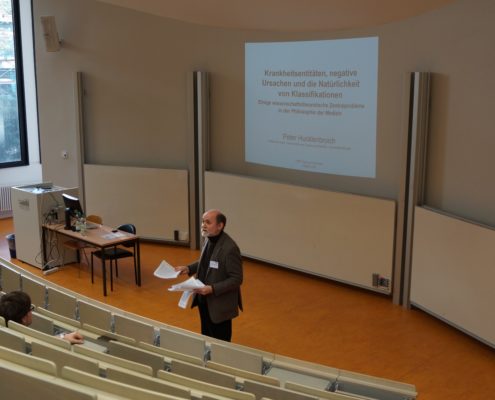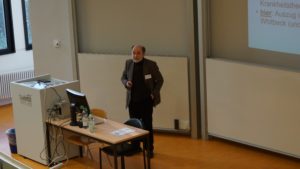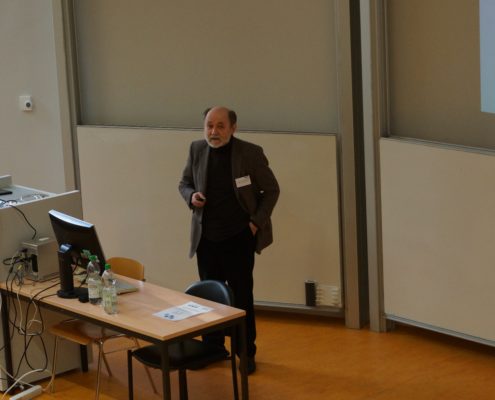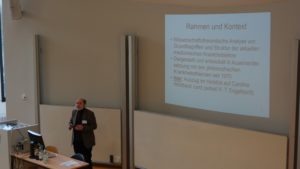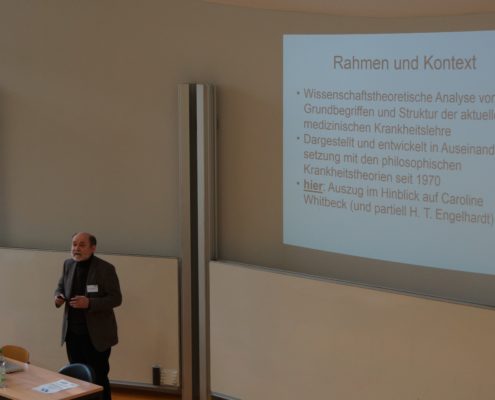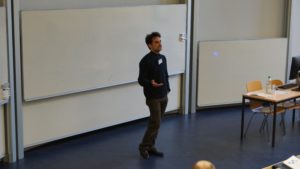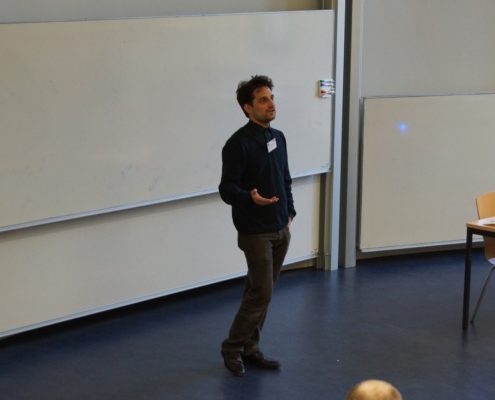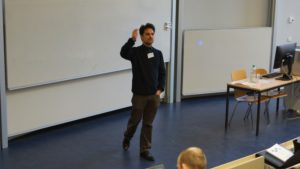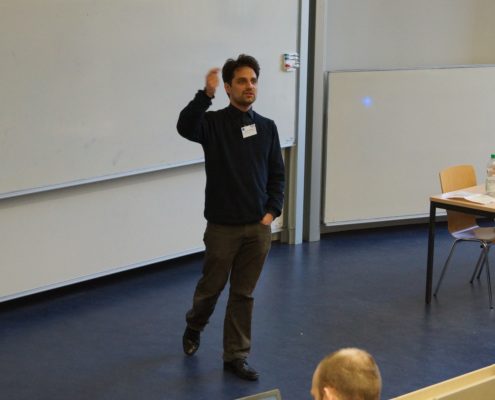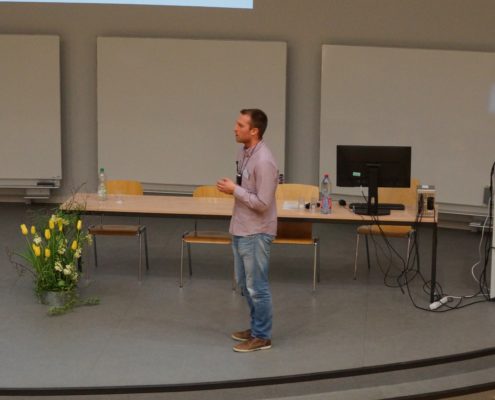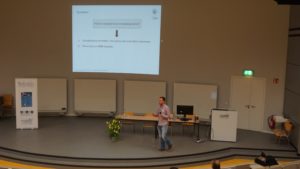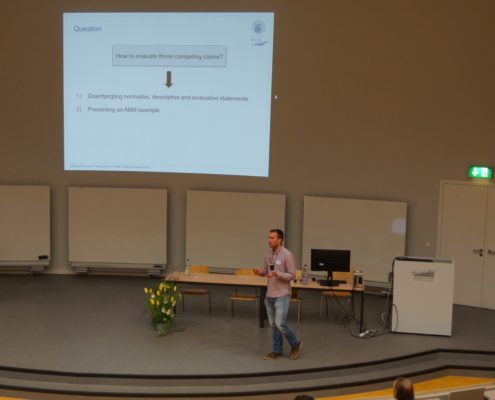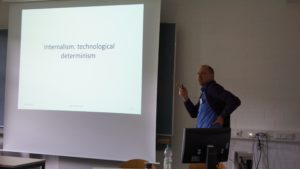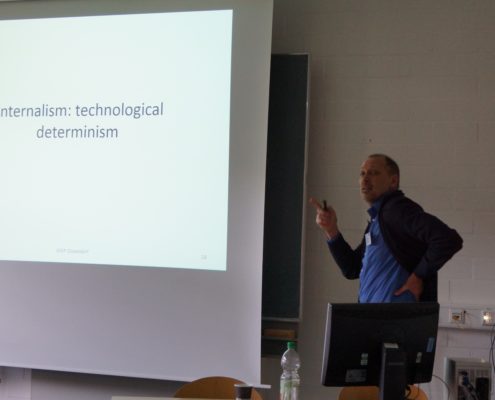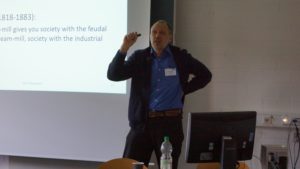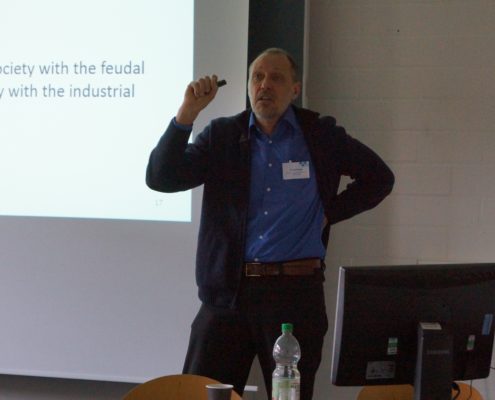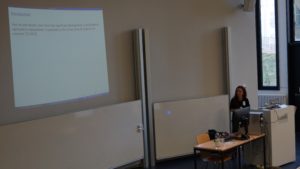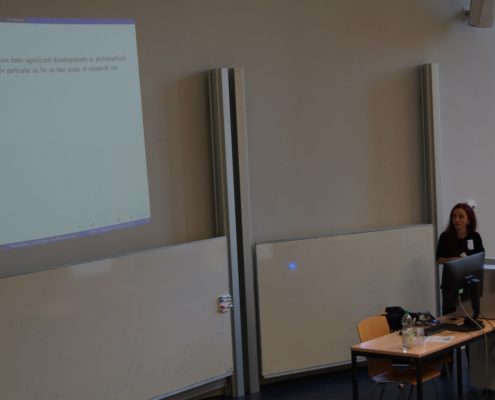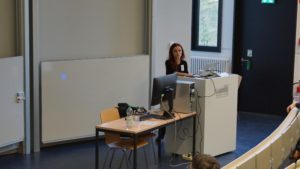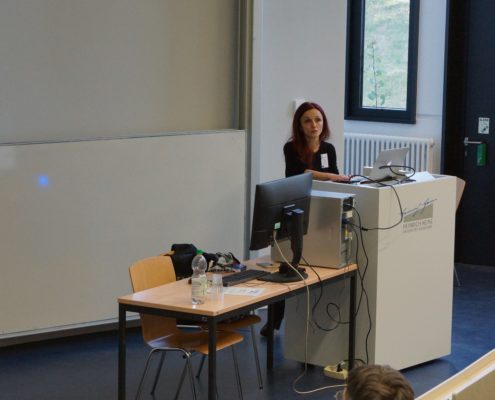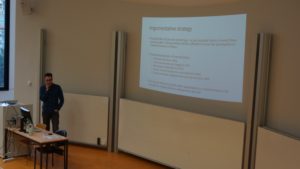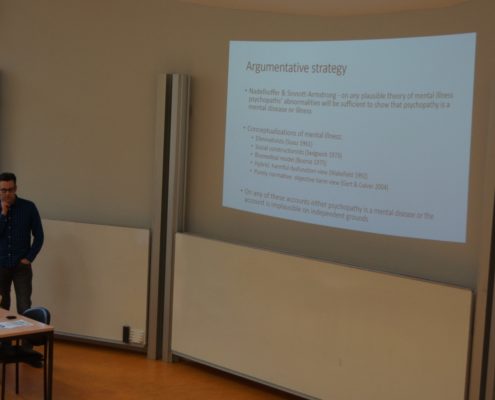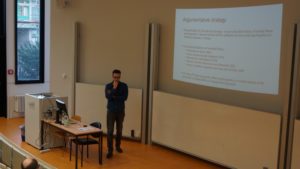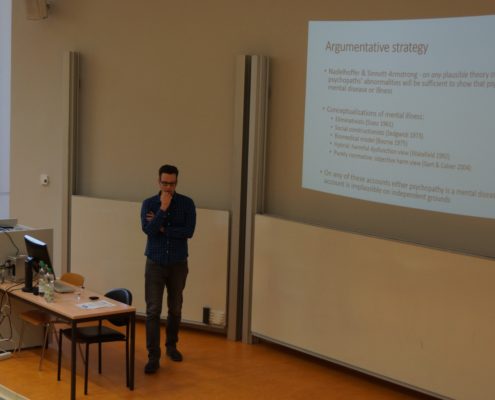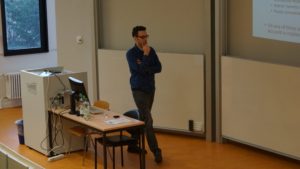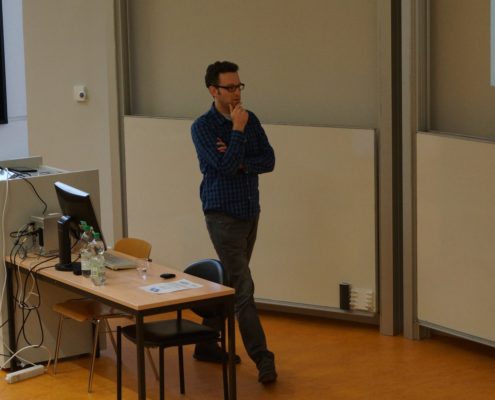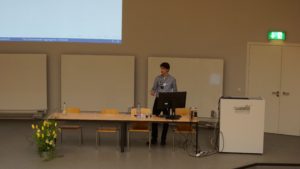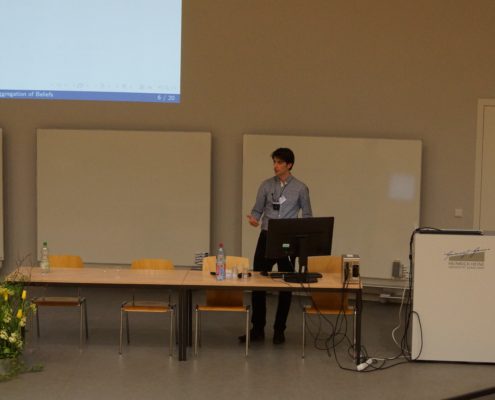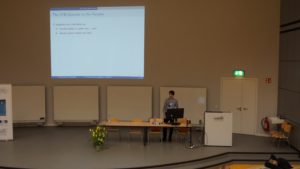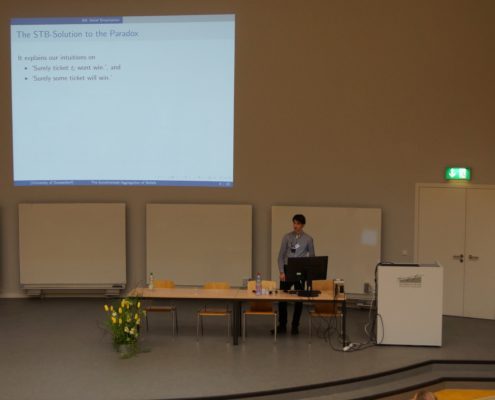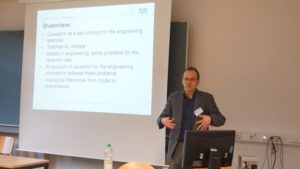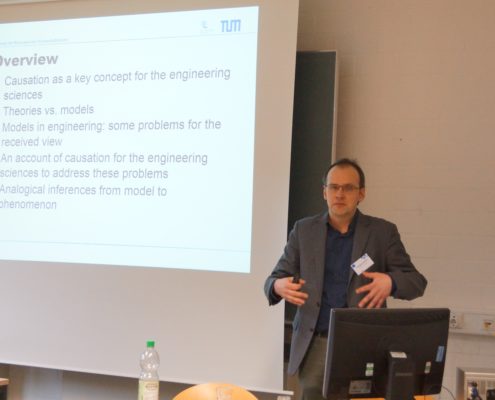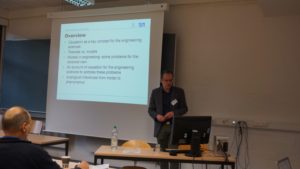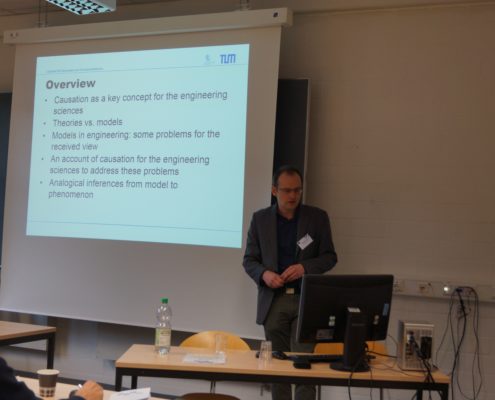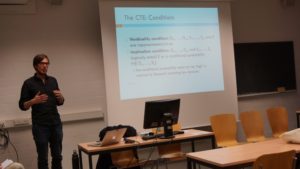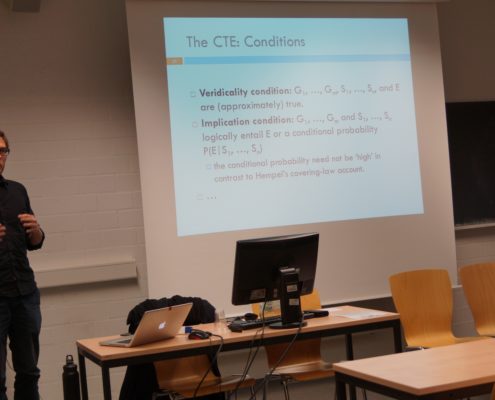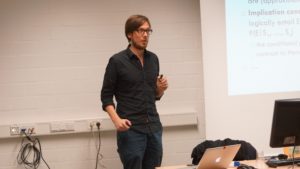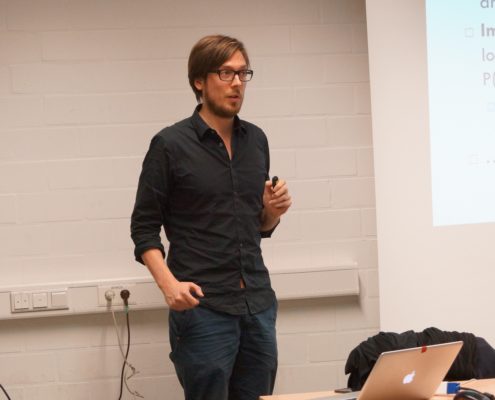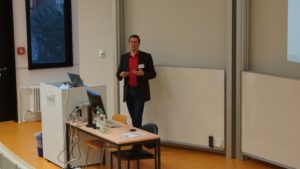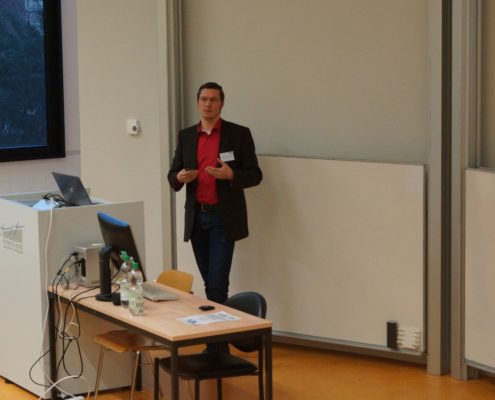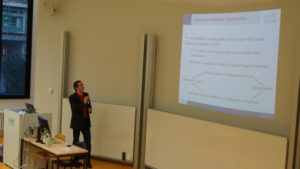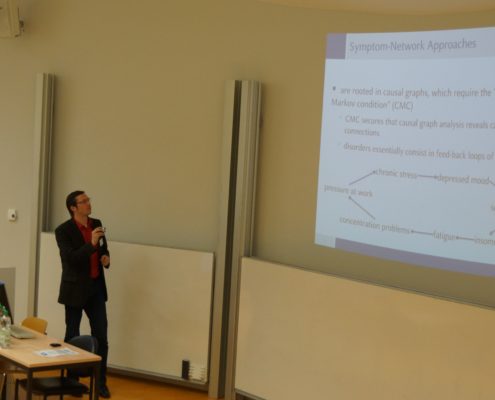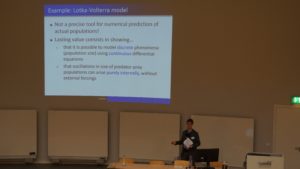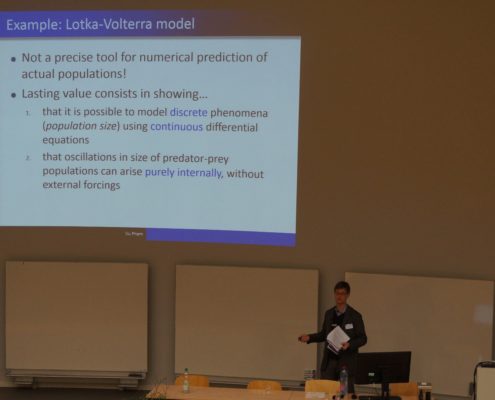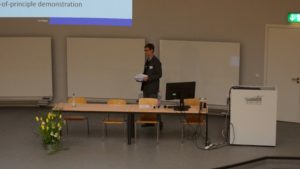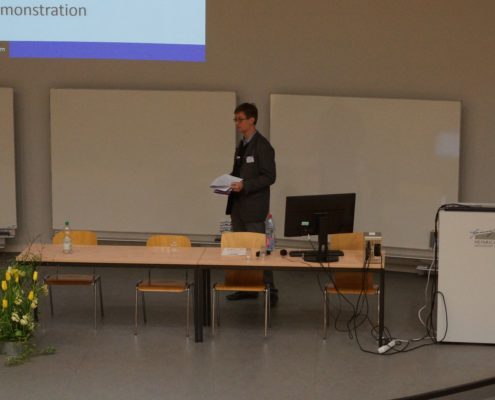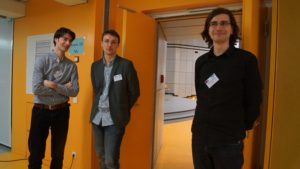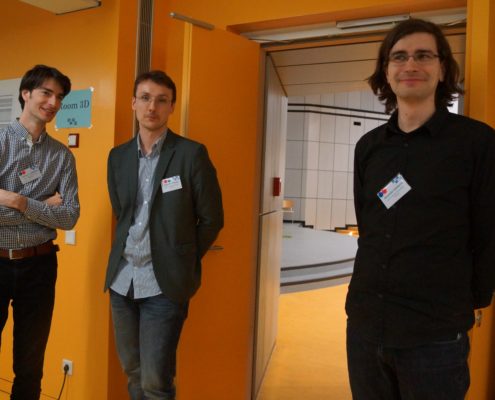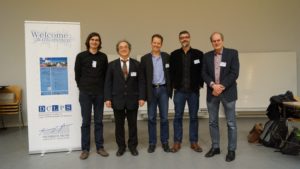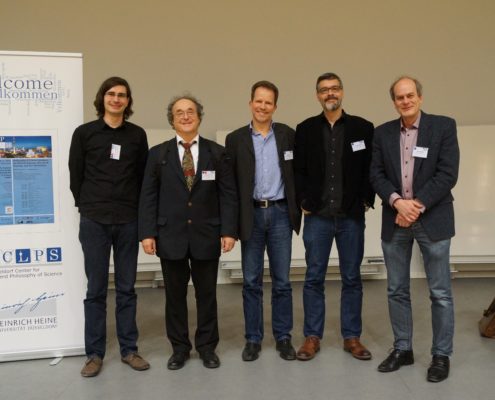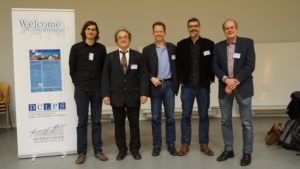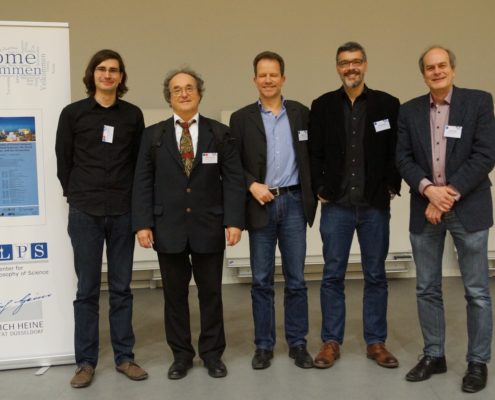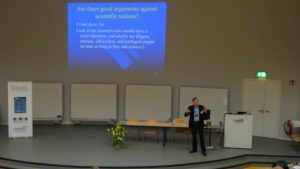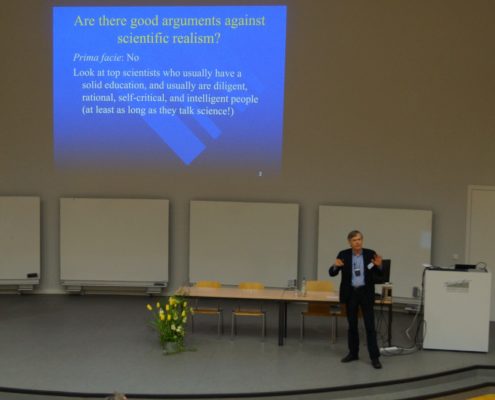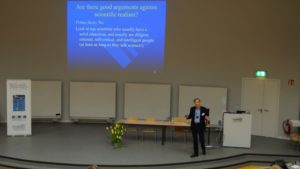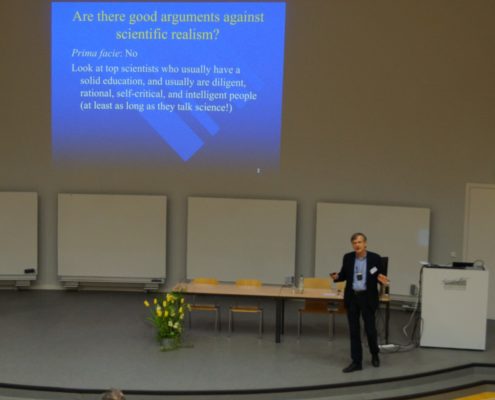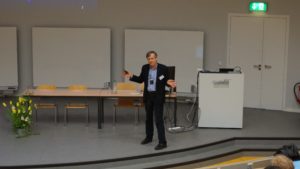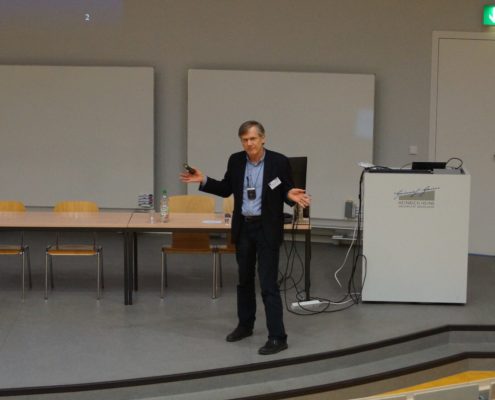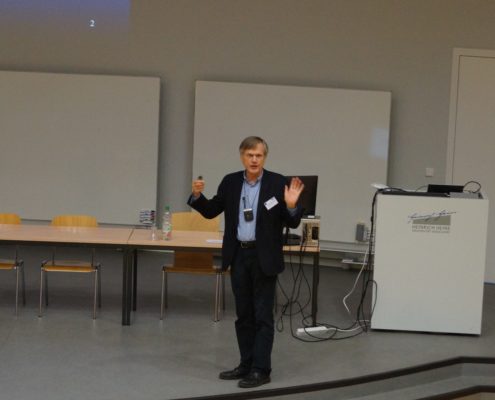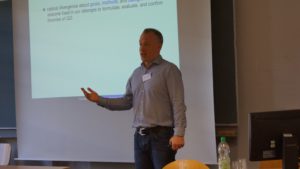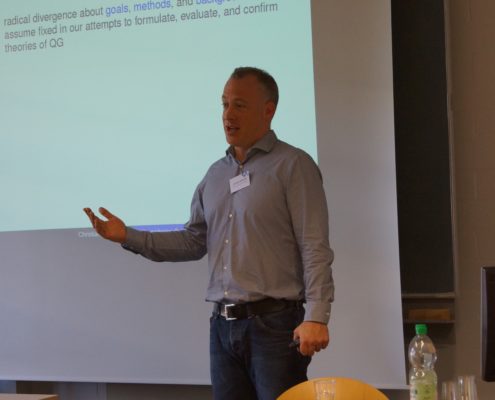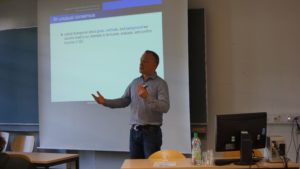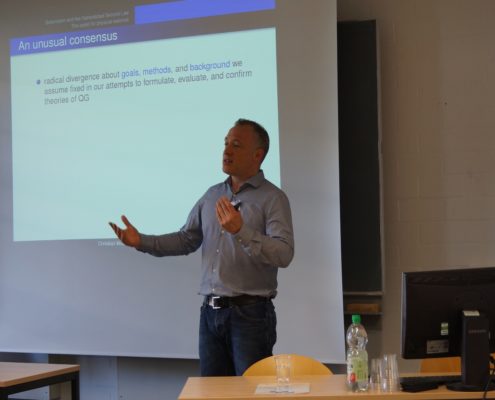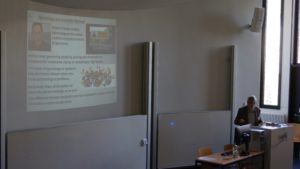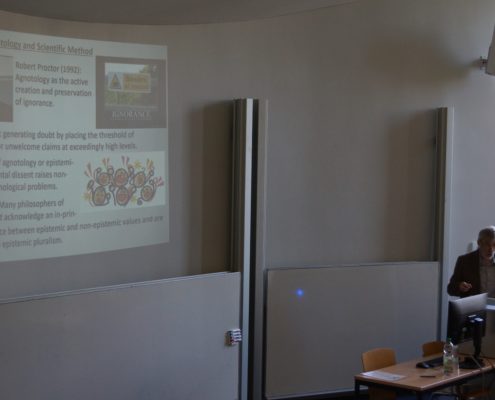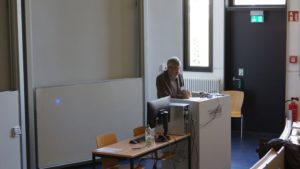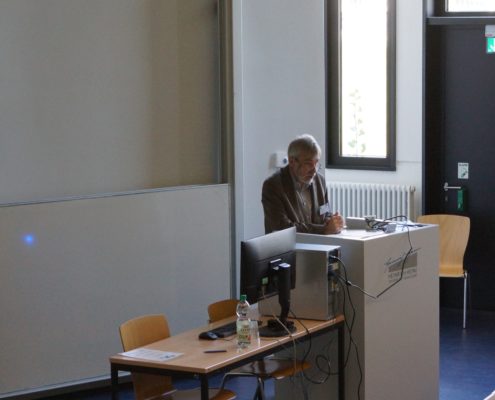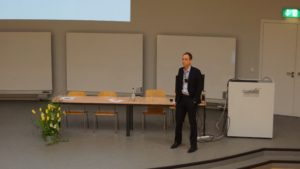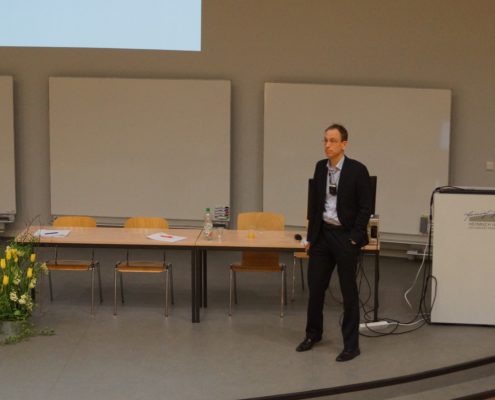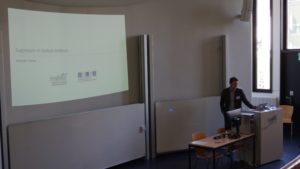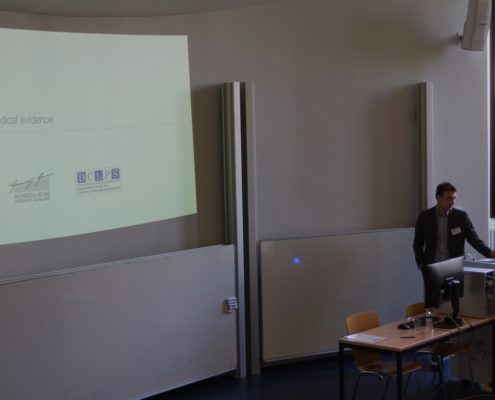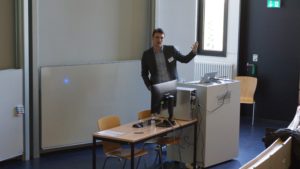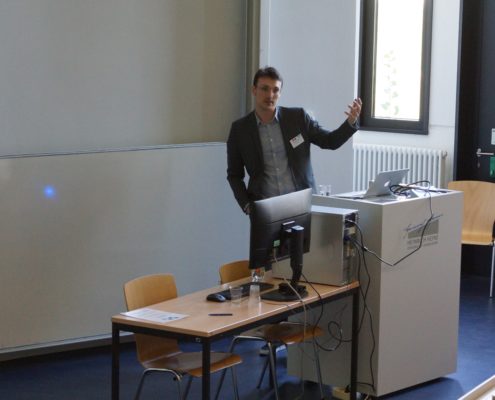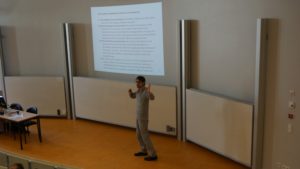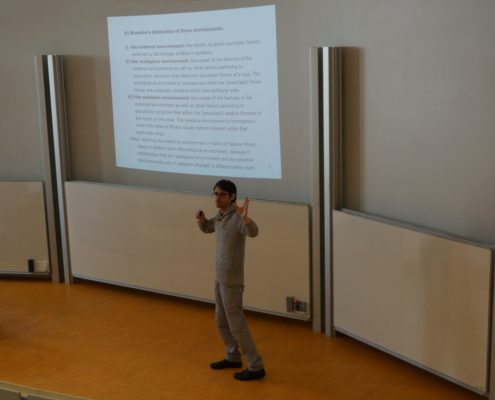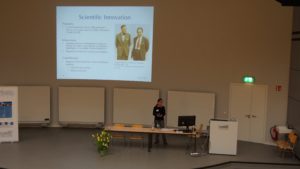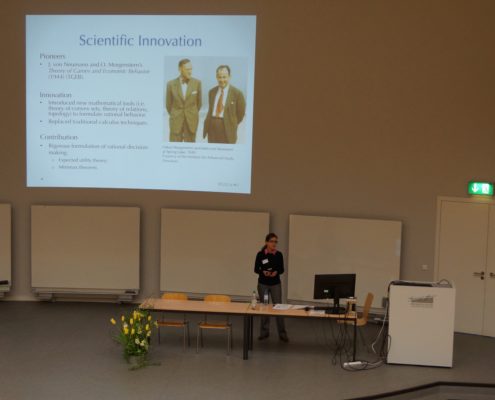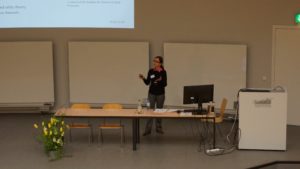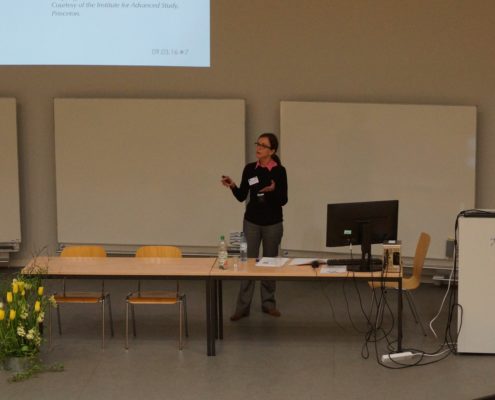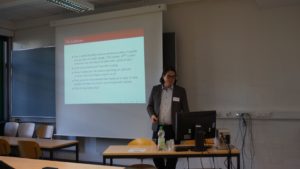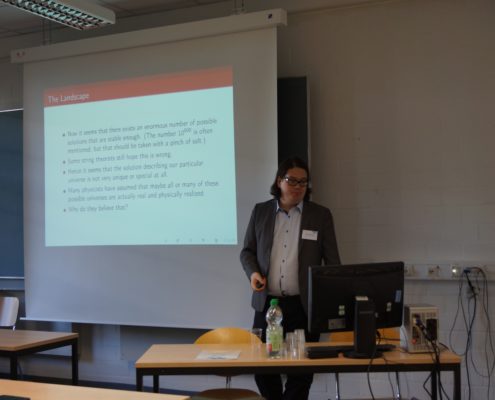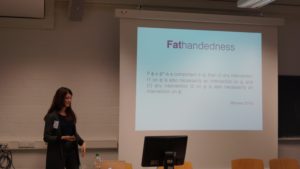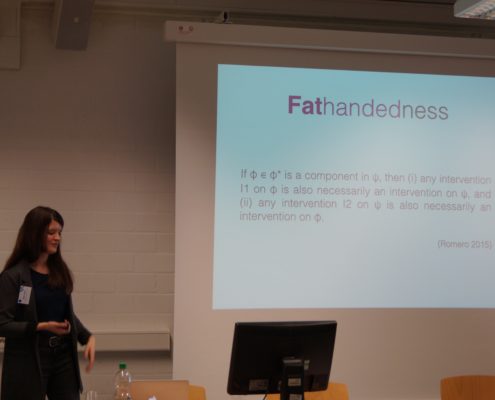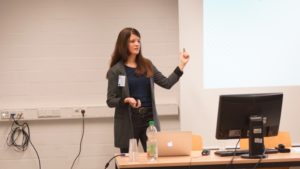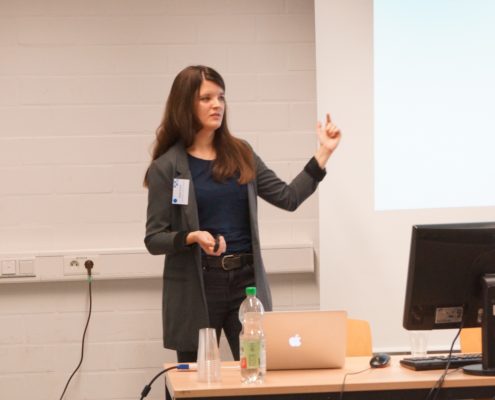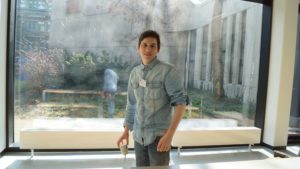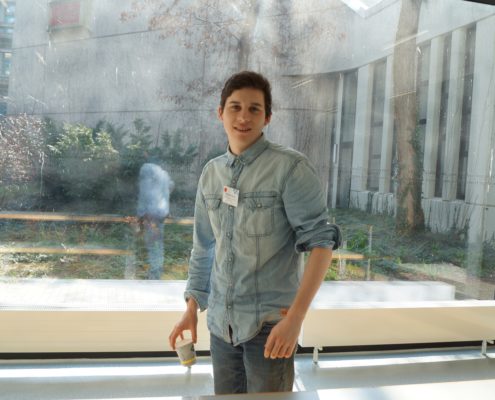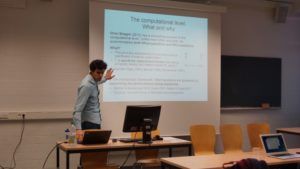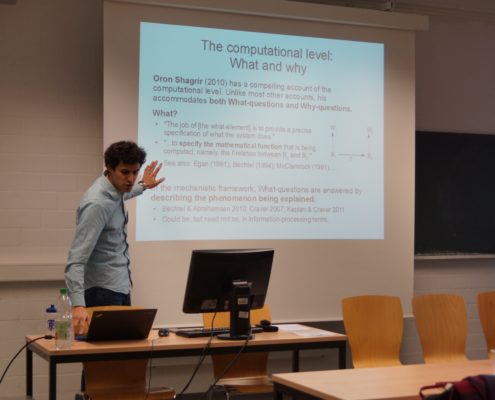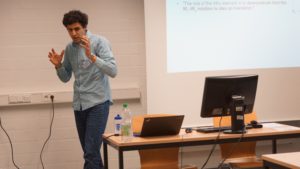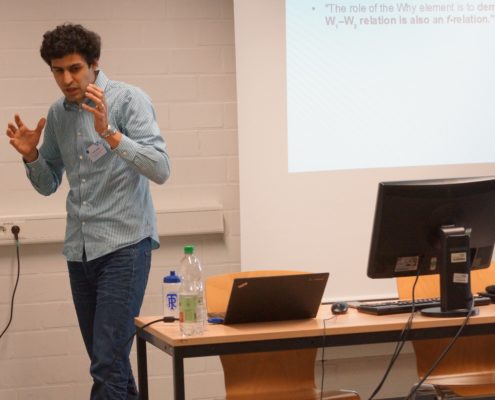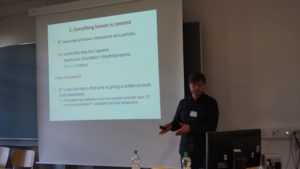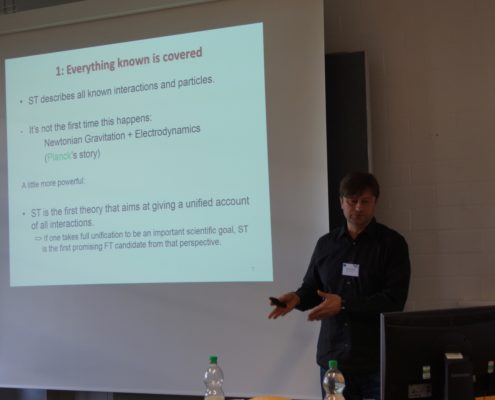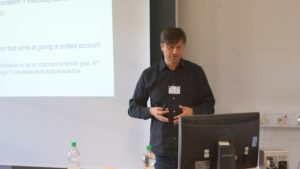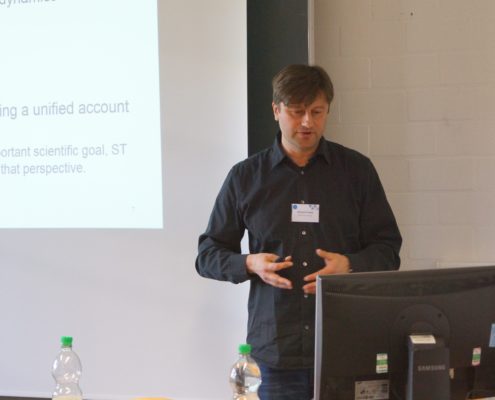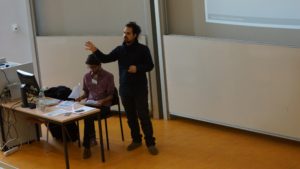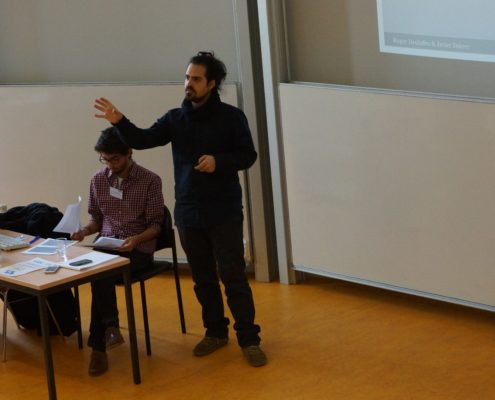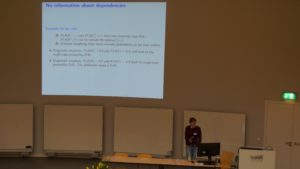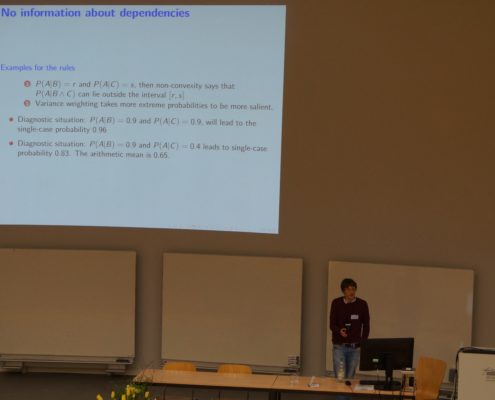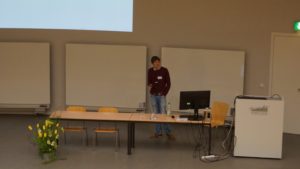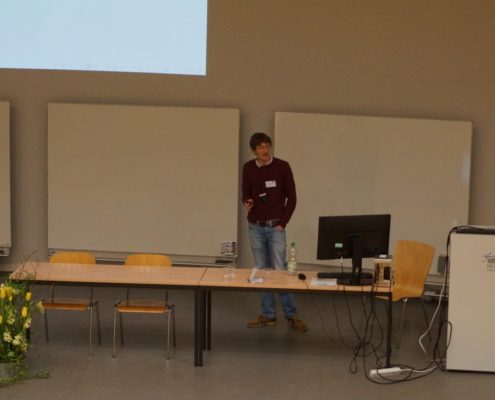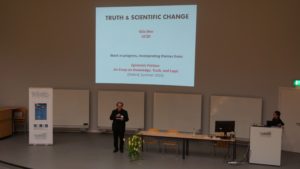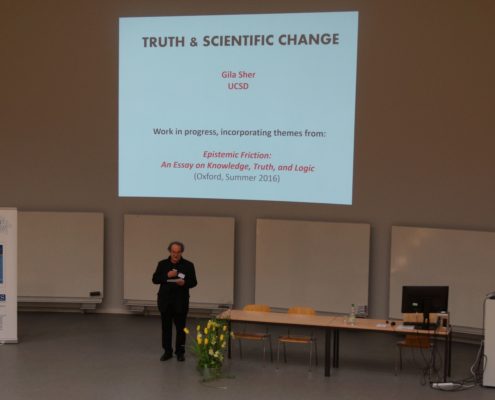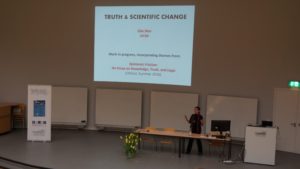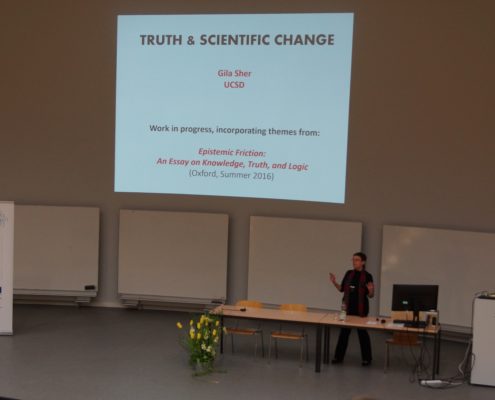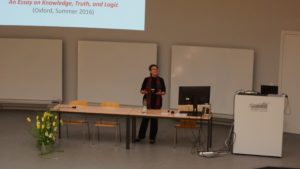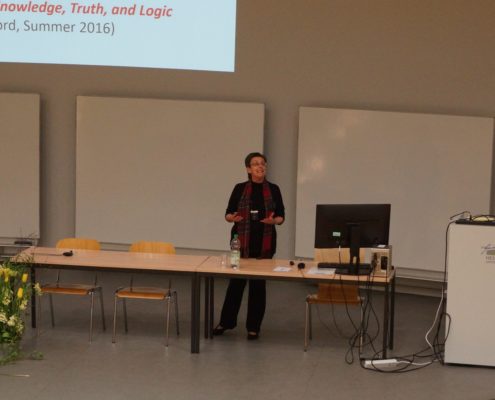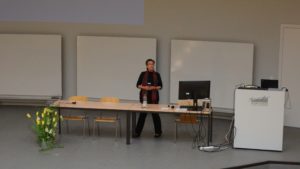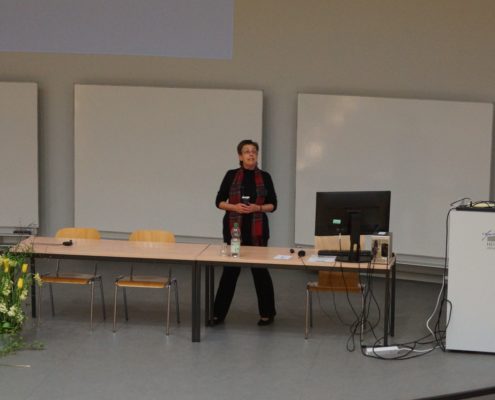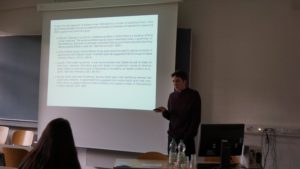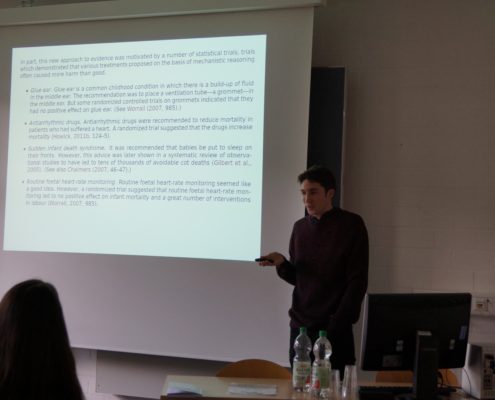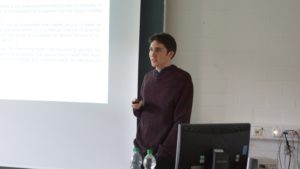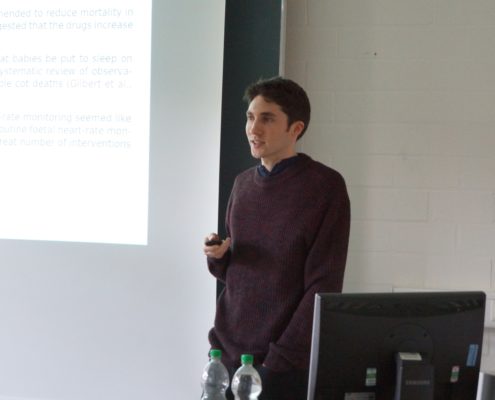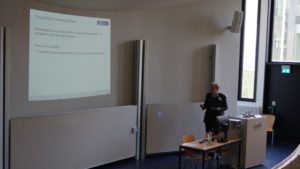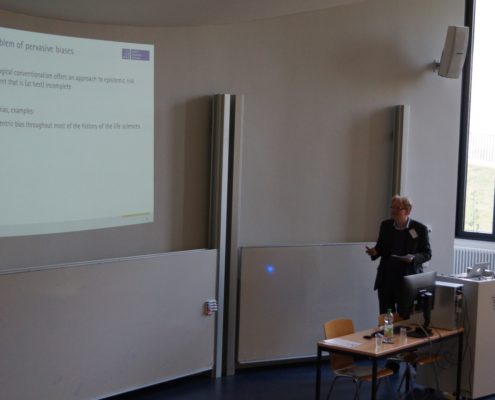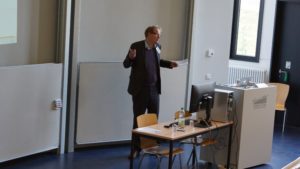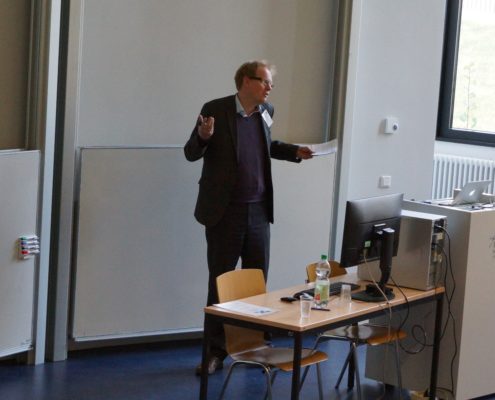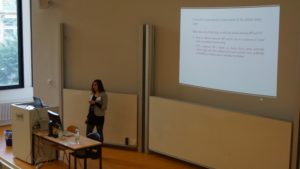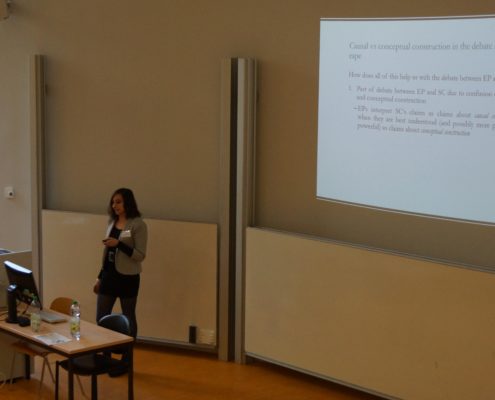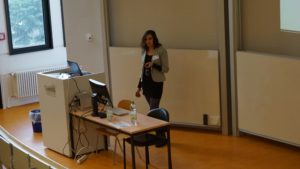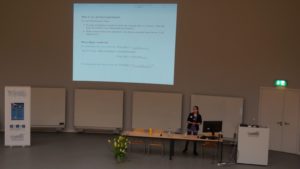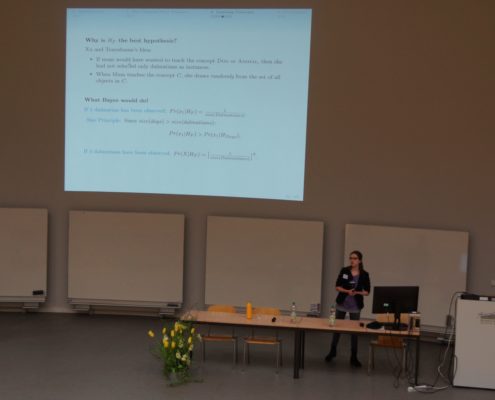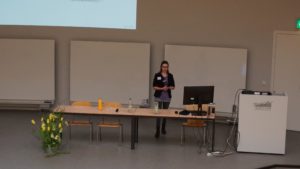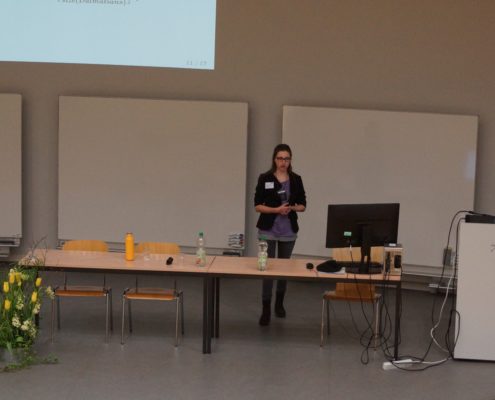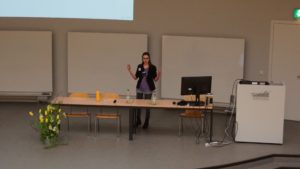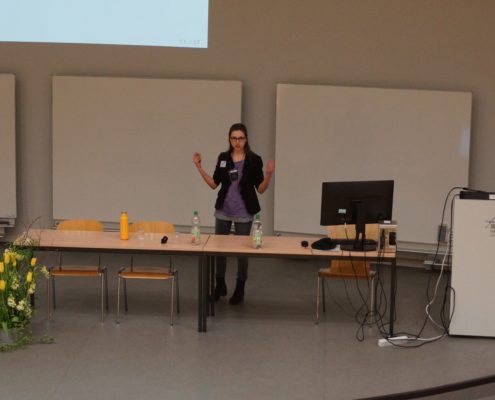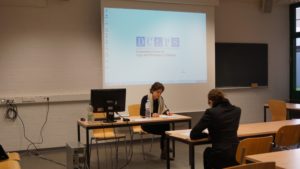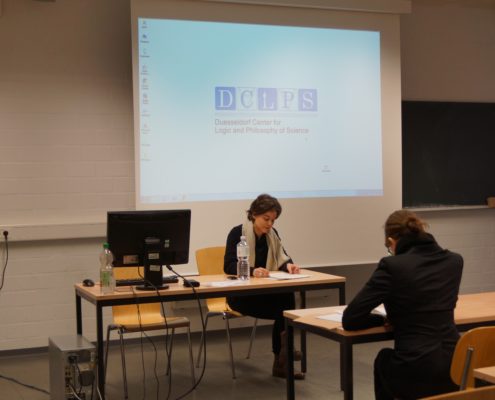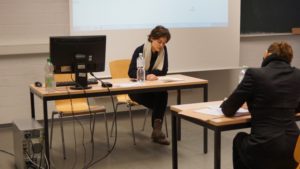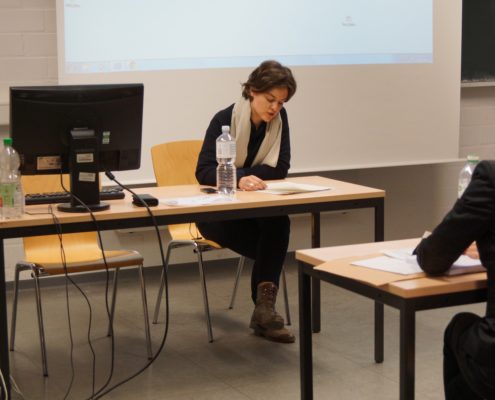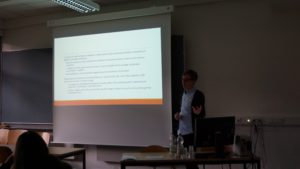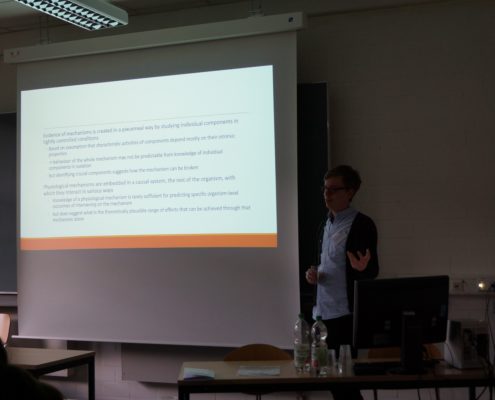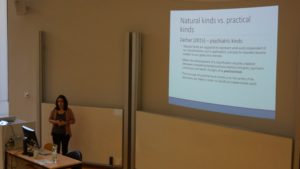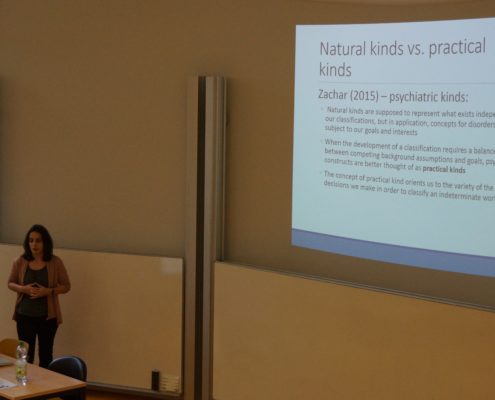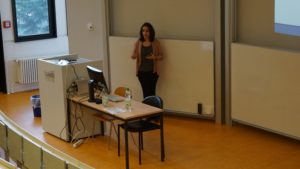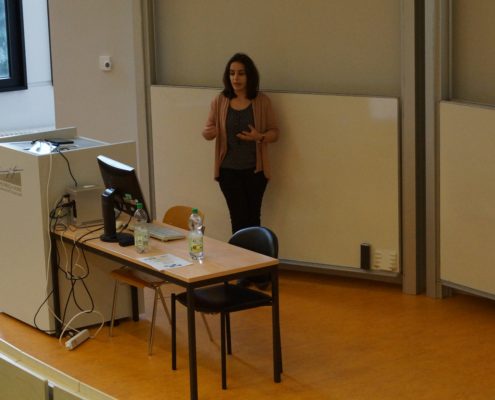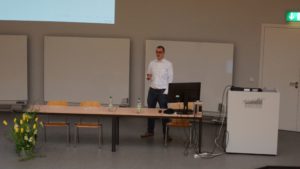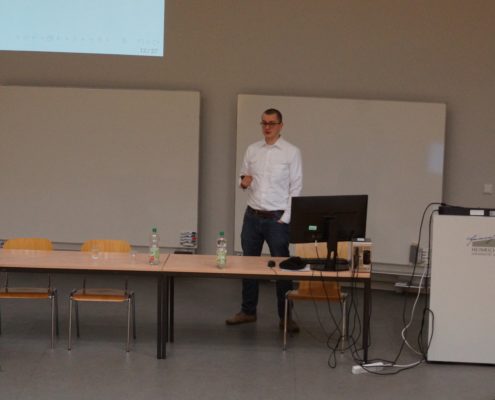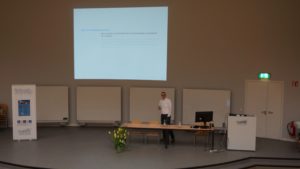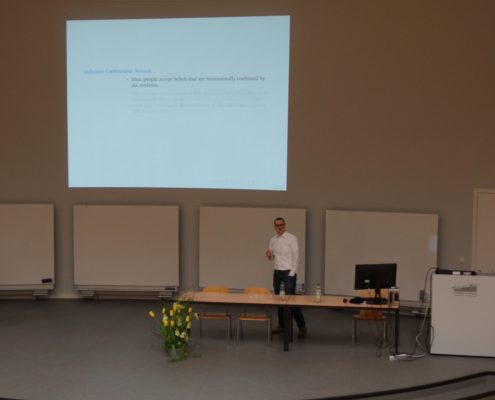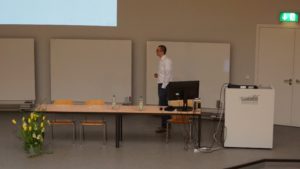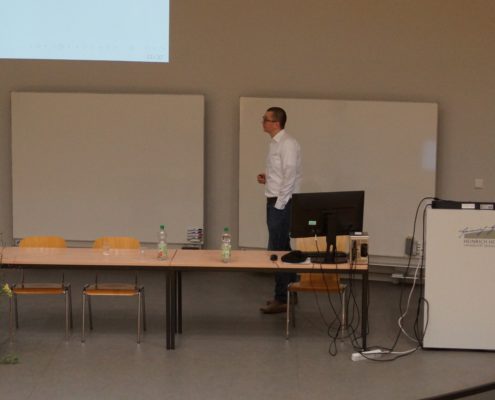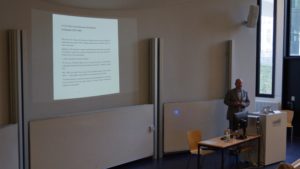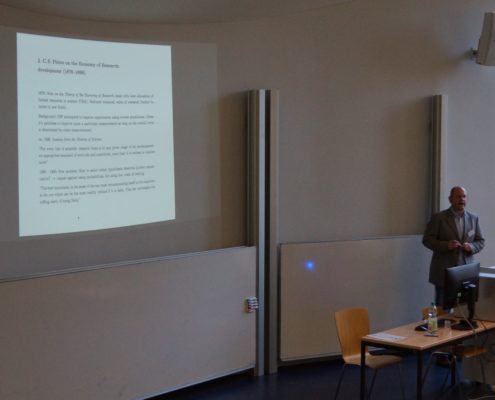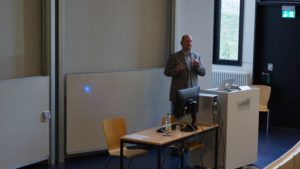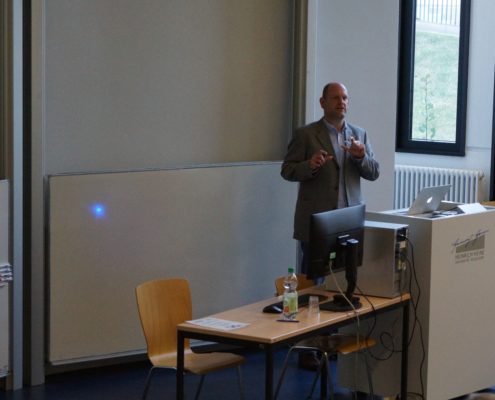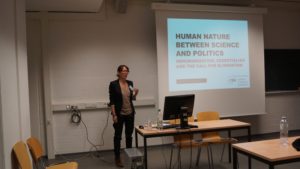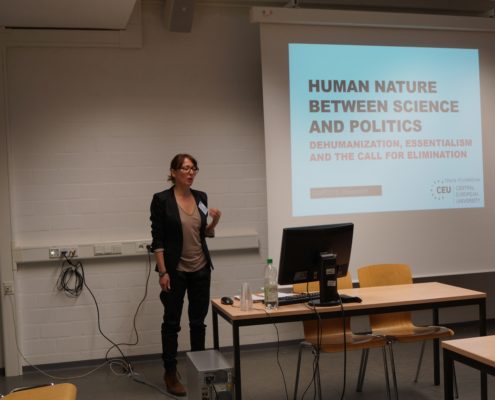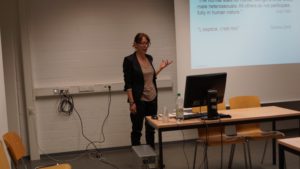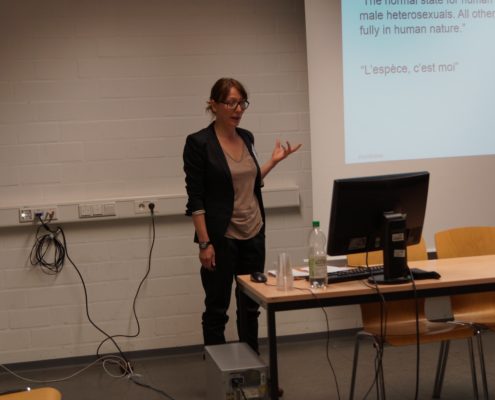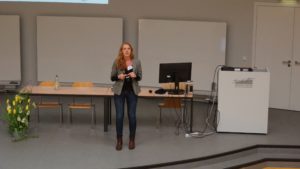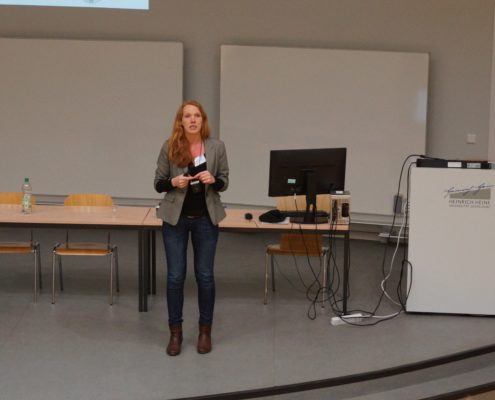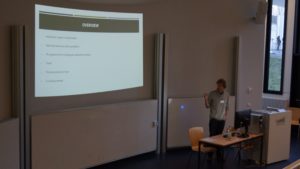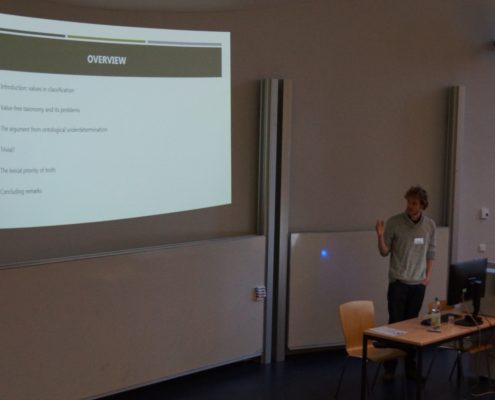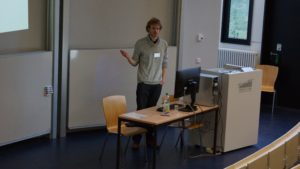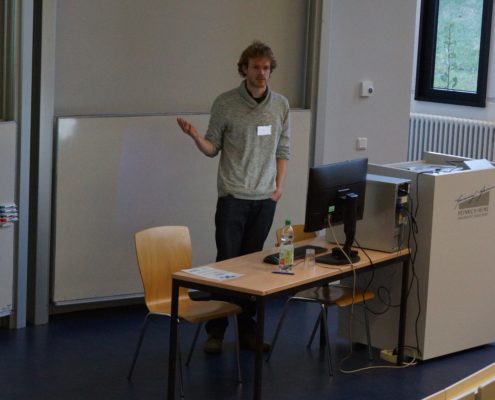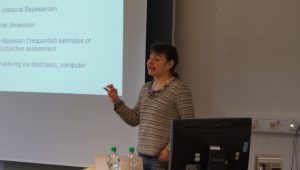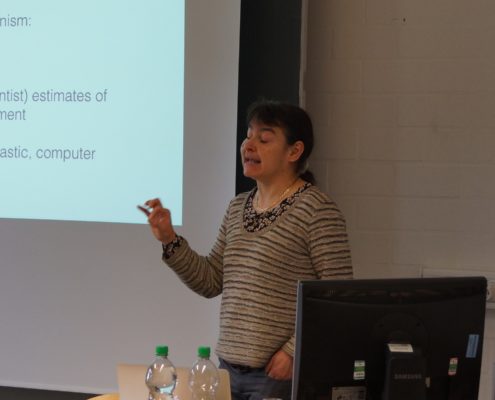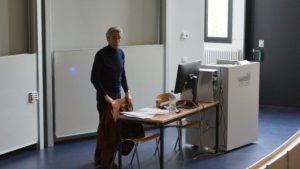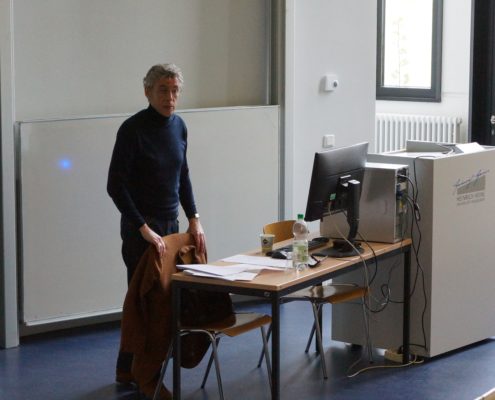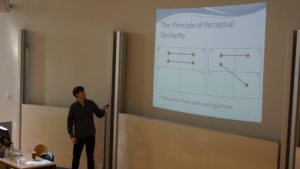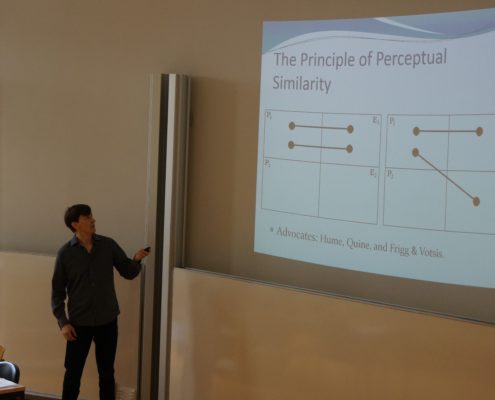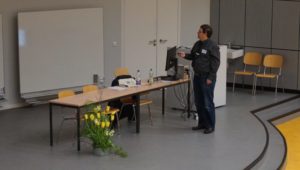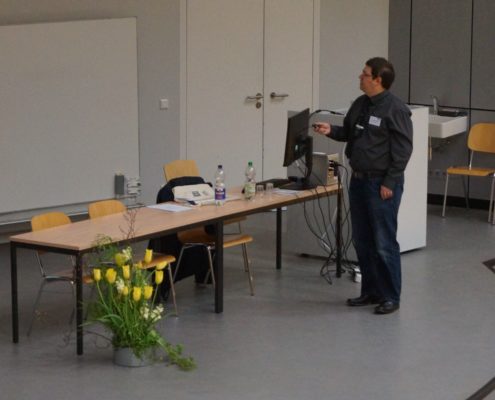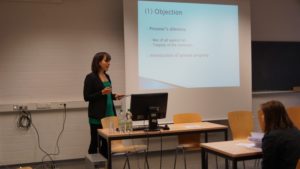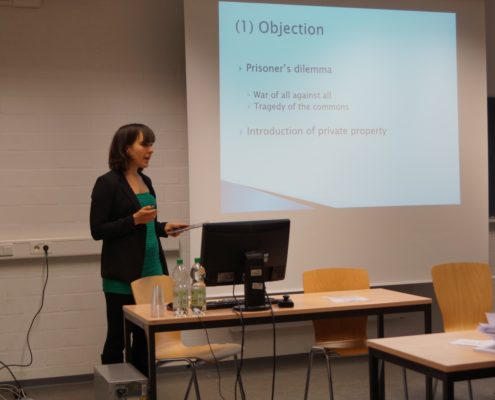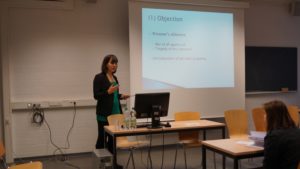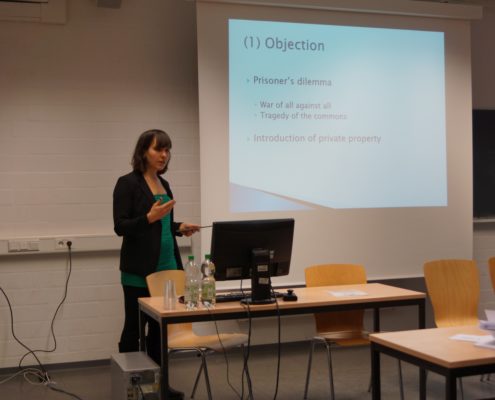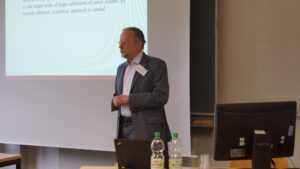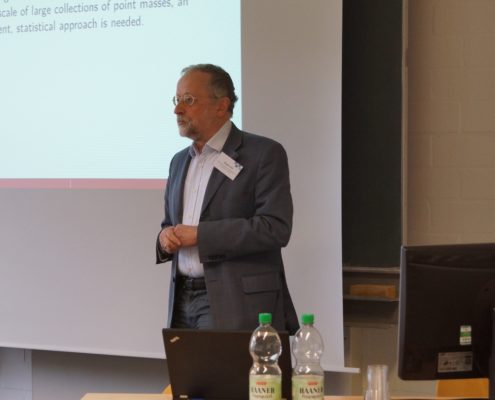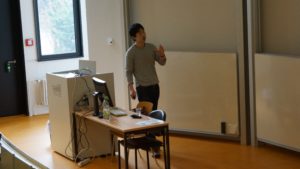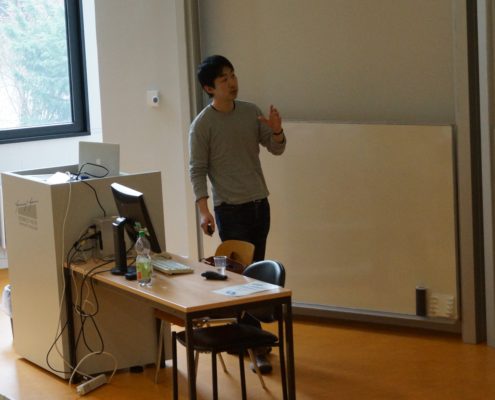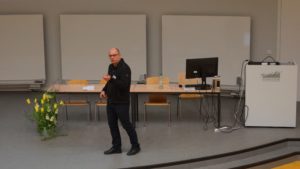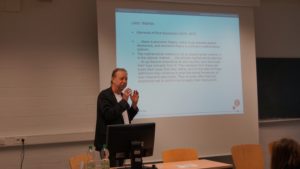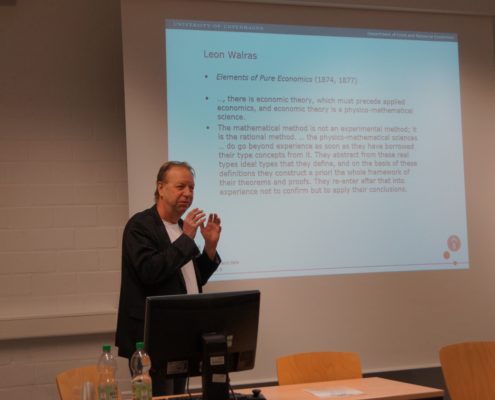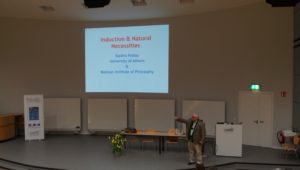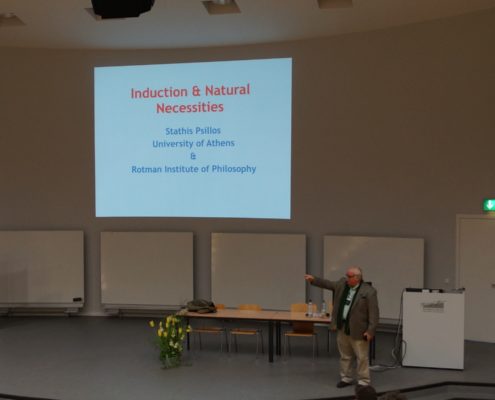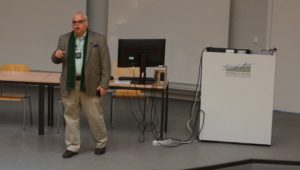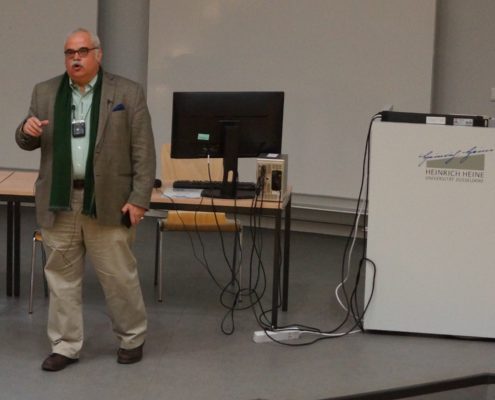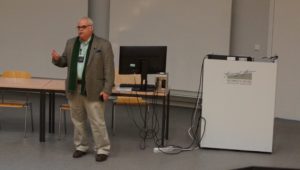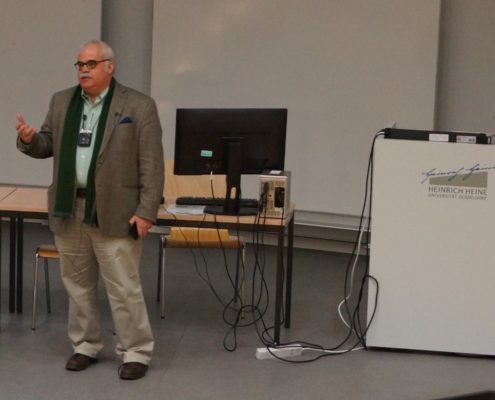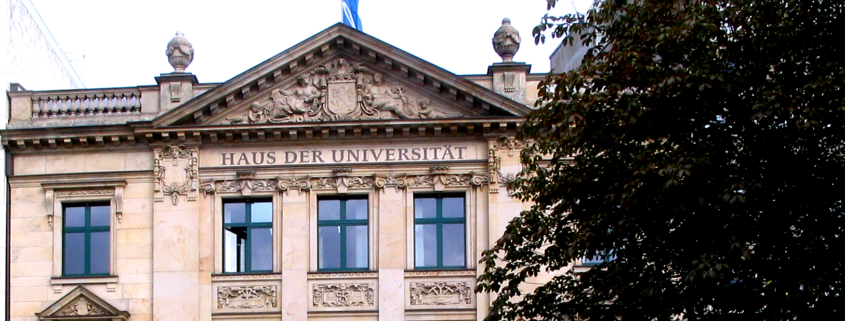Programme
Material for GWP.2016
Plenary Speakers
Programme Schedule
| Tuesday, March 8 | |||||
| 13:00-14:30 | Registration, foyer |
||||
| Opening, room 3D | |||||
| 14:30-15:00 | Andrea von Hülsen-Esch (Vice-President for International Relations) Holger Lyre (President of the GWP) Gerhard Schurz (Chair of the LOC, DCLPS) |
||||
| Plenary Lecture, room 3D (Chair: P. Thorn) | |||||
| 15:00-16:15 | Alexander Rosenberg: The Biological Character of Social Theory | ||||
| 16:15-16:45 | Refreshments, foyer | ||||
| Room 3B | Room 3C | Room 3D | Room 22 | Room 24 | |
| Philosophy of the Natural Sciences I (Chair: M. Frisch) | Philosophy of the Life Sciences I (Chair: G. Vosgerau) | General Philosophy of Science I (Chair: P. Brössel) | Symposium: Constitution and Constitutional Discovery (Chair: C. Feldbacher-Escamilla) | SPS-GWP Symposium: From Genetics to Culture – Lines, Gaps and Bridges (Chair: M. Kronfeldner) | |
|---|---|---|---|---|---|
| 16:45-17:25 | Kian Salimkhani: Quantum Gravity: An Ideology of Unification? | Teresa Behl: Pitfalls and Perspectives in Comparative Psychology | Markus Schrenk: Emergence for Better Best System Laws | Jens Harbecke: A Theory of Constitutive Inference for the Regularity Account of Mechanistic Constitution
Michael Baumgartner and Lorenzo Casini: Bayesian Constitutional Discovery Alexander Gebharter: Uncovering Constitutive Relevance Relations in Mechanisms |
Francesca Merlin: Epigenetics and the Explanation of Development: The Mirage of Moving Beyond Reductionism
Christian Sachse: Possible Limits of Reductive Explanations Cédric Paternotte: Information and the Evolution of Social Preferences |
| 17:25-18:05 | Julian Husmann and Paul Näger: Physical Composition as Bonding | Philipp Haueis: What are Organizational Principles in Contemporary Brain Mapping? | Ludwig Fahrbach: Past Realists Thought the Same … | ||
| 18:05-18:45 | Carsten Held: Antecedent-Strengthening and Ceteris Paribus Laws | Jonathan Surovell: Some Do’s and Don’ts of Defining Empirical Significance: A Carnapian Analysis | |||
| 19:30-22:00 | Conference Dinner, Brauerei Zum Schlüssel, Bolkerstraße 41-47 | ||||
| Wednesday, March 9 | |||||
| Plenary Lecture, room 3D (Chair: U. Feest) | |||||
| 09:15-10:30 | Michela Massimi: A (Possibly) Even Better Best System Account of Lawhood | ||||
| 10:30-11:00 | Refreshments, foyer | ||||
| Room 3B | Room 3C | Room 3D | Room 22 | Room 24 | |
| Philosophy of the Natural Sciences II (Chair: M. Stoeltzner) | Philosophy of the Life Sciences II (Chair: M. Kaiser) | General Philosophy of Science II (Chair: M. Schrenk) | History of Philosophy of Science (Chair: H. Pulte) | Symposium: Absences, Deficiencies and Malfunctions in Biological and Medical Explanations (Chair: T. Reydon) | |
|---|---|---|---|---|---|
| 11:00-11:40 | Enno Fischer: The Role of the Concept of Causation in Physics | Hardy Schilgen: From Ontological Interaction, to Epistemic Integration and Integrative Pluralism | Ina Goy: Kant’s Views on Preformation and Epigenesis | Ludger Jansen: Functions, Malfunctioning, and Negative Causation
Thomas Schramme: The Quantitative Problem for Theories of Function and Dysfunction Peter McLaughlin: Speciesism, Species Norm and the Lack of Species-Typical Traits in Moral Argumentation |
|
| 11:40-12:20 | Andrea Reichenberger: Causality in General Relativity. “Partial Determination” Revisited | Anne Sophie Meincke: The Philosophical Concept of Agency between Systems Biology and Artificial Intelligence | Rico Hauswald: Scientific Pluralism and its Trade-Offs | ||
| 12:20-13:00 | Mathias Frisch: Quantum Mechanics and Retro-Causation | Hajo Greif: Teleosemantics and the Meaning of Adaptation | Bas de Boer: The Perspective of the Instruments: Mediating Intersubjectivity | Markus Seidel: The Vibe Around 1930: Scientism and Political Philosophy of Science | |
| 13:00-15:00 | Lunch Break | ||||
| JGPS Lecture, room 3D (Chair: U. Krohs) | |||||
| 15:00-16:15 | Rainer Hegselmann: Thomas C. Schelling and James M. Sakoda – How to Become an Unknown Pioneer? | ||||
| 16:15-16:45 | Refreshments, foyer | ||||
| Room 3B | Room 3C | Room 3D | Room 22 | Room 24 | |
| Philosophy of the Natural Sciences III (Chair: R. Dawid) | Philosophy of the Life Sciences III (Chair: J. Harbecke) | General Philosophy of Science III (Chair: C. Held) | Causality (Chair: D. Hommen) | Symposium: The Relation between Philosophy of Science and Philosophy of Engineering after the Practice Turn (Chair: R. Hillerbrand) | |
| 16:45-17:25 | Simon Friederich: The Fine-Tuning Argument for the Multiverse Under Attack | Peter Hucklenbroich: Disease Entities, Negative Causes of Disease, and the Naturalness of Disease Classifications | Simon Scheller: Agent-Based Modeling and Democratic Theory: Improving Normative Arguments through Simulation | Tobias Henschen: Interventions or Ranks? |
Peter Kroes: Internalism and Externalism in the Philosophy of Engineering
Wolfgang Pietsch: A Causal Perspective on Modeling in the Engineering Sciences |
| 17:25-18:05 | Flavia Padovani: Coordination, Measurement, and the Problem of Representation of Physical Quantities | Marko Jurjako: The (Dys)functionality of Psychopathy: Perspective from the Philosophy of Science | Christian J. Feldbacher-Escamilla: The Synchronized Aggregation of Beliefs and Probabilities | ||
| 18:05-18:45 | Riske Schlüter: Holism of Climate Models and their Construction with Empirical Data and Theoretical Knowledge | Gottfried Vosgerau: Mental Disorders as Higher-Order Theoretical Terms | Axel Gelfert: Exploratory Modes of Scientific Inquiry: From Experimentation to Modeling | Alexander Reutlinger: Is There A Monist Theory of Causal and Non-Causal Explanations? The Counterfactual Theory of Scientific Explanation | |
| 19:00-20:00 | GWP Meeting, room 3D | ||||
| Thursday, March 10 | |||||
| Plenary Lecture, room 3D (Chair: T. Reydon) | |||||
| 09:15-10:30 | Paul Hoyningen-Huene: Are there Good Arguments Against Scientific Realism? | ||||
| 10:30-11:00 | Refreshments, foyer | ||||
| Room 3B | Room 3C | Room 3D | Room 22 | Room 24 | |
| Values in Science I (Chair: C. Menke) | Philosophy of the Life Sciences IV (Chair: A.S. Meincke) | General Philosophy of Science IV (Chair: L. Fahrbach) | Mechanisms (Chair: A. Gebharter) | Symposium: Methodological Challenges in Quantum Gravity (Chair: W. Pietsch) | |
|---|---|---|---|---|---|
| 11:00-11:40 | Martin Carrier: Agnotological Challenges: How to Capture the Production of Ignorance | Susanne Hiekel: Evolutionary Explanations | Claus Beisbart: Reflective Equilibrium – A Method for Philosophy of Science? | Christian Wüthrich: The Use of Black Hole Thermodynamics as Non-Empirical Confirmation
Keizo Matsubara: On Predictions and Explanations in Multiverse Scenarios Richard Dawid: Can We Make Sense of the Final Theory Claim in String Theory? |
|
| 11:40-12:20 | Alexander Christian: The Suppression of Medical Evidence | Ciprian Jeler: Types of Environments and Multi-Level Natural Selection | Catherine Herfeld and Malte Doehne: How Theories Travel: The Case of ‘The Theory of Games and Economic Behavior’ | Beate Krickel: Empirically Assessing Mechanistic Constitution With Interventions | |
| 12:20-13:00 | Javier Suárez and Roger Deulofeu: On the Explanatory Character of the Serial Endosymbiotic Theory of the Origin of Eukaryotic Cells | Christian Wallmann: Different Solutions to the Problem of Conflicting Reference Classes and their Application to Personalized Medicine | Carlos Zednik: Viewing Marr as a Mechanist | ||
| 13:00-15:00 | Lunch Break | ||||
| Plenary Lecture, room 3D (Chair: G. Schurz) | |||||
| 15:00-16:15 | Gila Sher: Truth and Scientific Change | ||||
| 16:15-16:45 | Refreshments, foyer | ||||
| Room 3B | Room 3C | Room 3D | Room 22 | Room 24 | |
| Values in Science II (Chair: A. Christian) | Philosophy of the Life Sciences V (Chair: D. Hommen) | General Philosophy of Science V (Chair: C. Beisbart) | Philosophy of the Social Sciences and the Humanities I (Chair: R. Hillerbrand) | Symposium: Evidence of Mechanisms in Medicine (Chair: B. Krickel) | |
| 16:45-17:25 | Torsten Wilholt: Cognitive Interests and Scientific Objectivity | Jessica Laimann: Explaining Human Behaviour, Changing Human Behaviour: How to Be an Evolutionary Social Constructionist | Peter Brössel and Nina Poth: Why the Psychology of Reasoning Needs Normativity: The Complex-First-Paradox | Eva-Maria Jung: Reconsidering the “Experimental Turn” in the Humanities | Michael Wilde: Evidence of Mechanisms in Medicine
Veli-Pekka Parkkinen: Defending the Epistemic Significance of Mechanisms |
| 17:25-18:05 | Cornelis Menke: Is the Argument from Inductive Risk Applicable to Pure Research? | Zdenka Brzovic and Predrag Sustar: Natural and Social Kinds: Overlaps and Distinctions | Benjamin Horrig and Peter Brössel: Predictive Coding and the Rationale of the Conjunction Fallacy | Lara Huber: From Stability to Validity: How Standards Serve Epistemic Ends | |
| 18:05-18:45 | Stijn Conix: Values in Species Classification | Kamuran Osmanoglu: The Biological Reality of Race Does Not Underwrite the Social Reality of Race: A Response to Spencer | Marie I. Kaiser: Normativity in the Philosophy of Science | Maria Kronfeldner: Human Nature Between Science and Politics: Dehumanization, Essentialism and the Call for Elimination | |
| Friday, March 11 | |||||
| Room 3B | Room 3C | Room 3D | Room 22 | Room 24 | |
| Philosophy of Mathematics (Chair: A. Schuster) | Confirmation (Chair: T. Wilholt) | General Philosophy of Science VI (Chair: H. Greif) | Philosophy of the Social Sciences and the Humanities II (Chair: E.-M. Jung) | Symposium: Mathematics as a Tool (Chair: N. Retzlaff) | |
|---|---|---|---|---|---|
| 09:15-09:55 | Fabrice Pataut: Gödel on Intuitionistic Logic, and Davidsonian Radical Interpretation: The Case of the Logical Constants | Paul Thorn: The Stimulus Perception Connection | David Botting: Toulmin’s Logical Types | Elizaveta Kostrova: The Role of “Ought” in Value Theory: Philosophical and Sociological Perspectives | Anouk Barberousse: Empirical Bayes as a Tool
Juergen Jost: Mathematics in the Era of Big Data is not the Tool of Science, but the Science of Tools Johannes Lenhard: Boon and Bane: On the Role of Adjustable Parameters in Simulation Models |
| 09:55-10:35 | Michael Stoeltzner: Hilbert’s Axiomatic Method and Carnap’s General Axiomatics | Yukinori Onishi: Defending Selective Confirmation Strategy | Wolfgang Freitag: Goodman’s Paradox and Hansson’s Puzzle | Judith Würgler: The “Invisible Hand” as a Natural Law | |
| 10:35-11:15 | Antonio Piccolomini d’Aragona: Recognition Procedures and Dag Prawitz’s Theory of Grounds | Jakob Koscholke: Why Coherence Cannot be Measured as Relative Overlap | Karsten Klint Jensen: Micro Economics Between the Natural Sciences and the Humanities | ||
| 11:15-11:45 | Refreshments, foyer | ||||
| Plenary Lecture, room 3D (Chair: H. Lyre) | |||||
| 11:45-13:00 | Stathis Psillos: Induction and Natural Necessities | ||||







